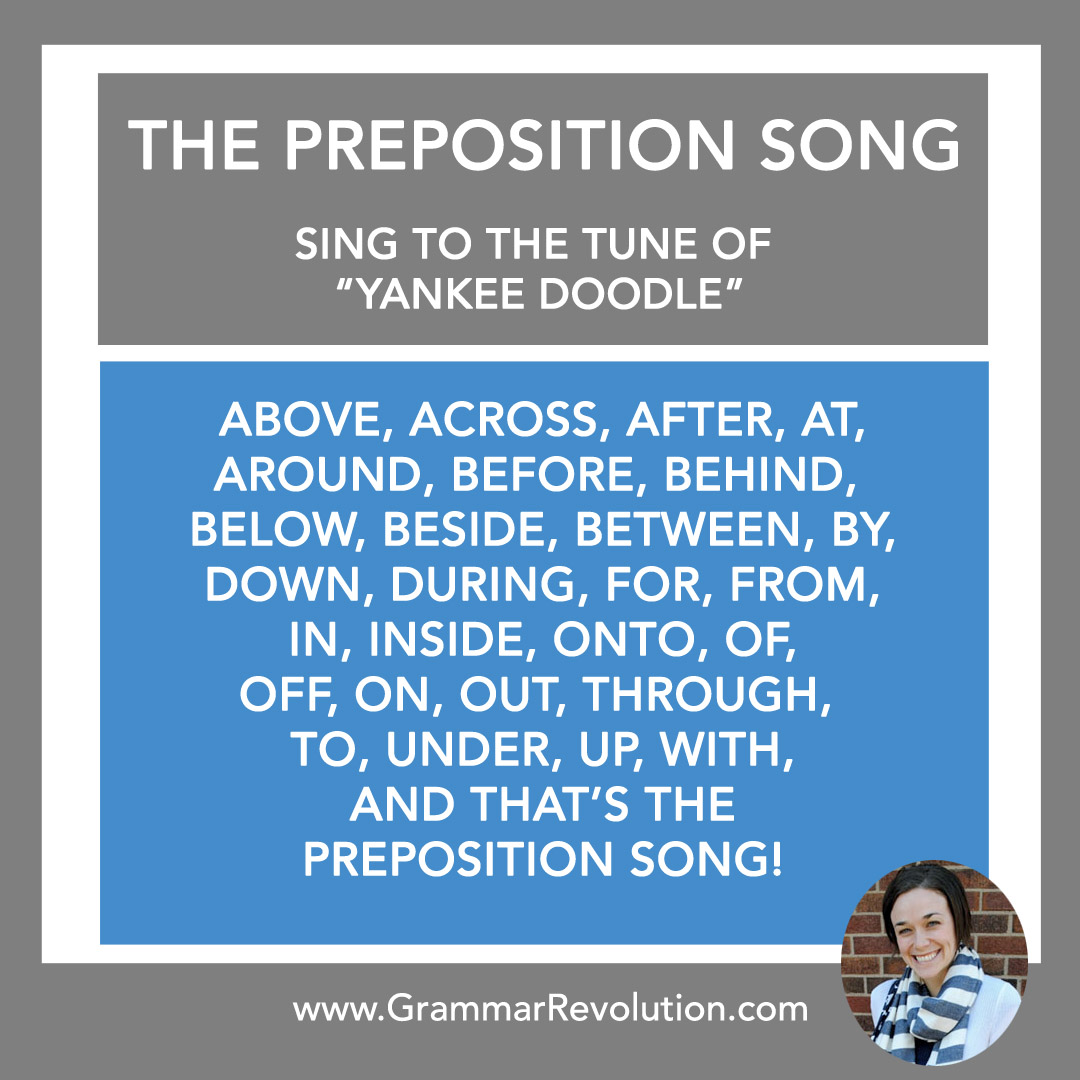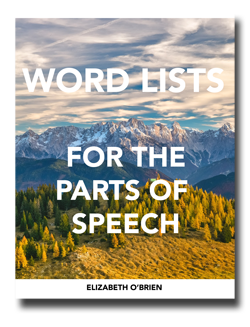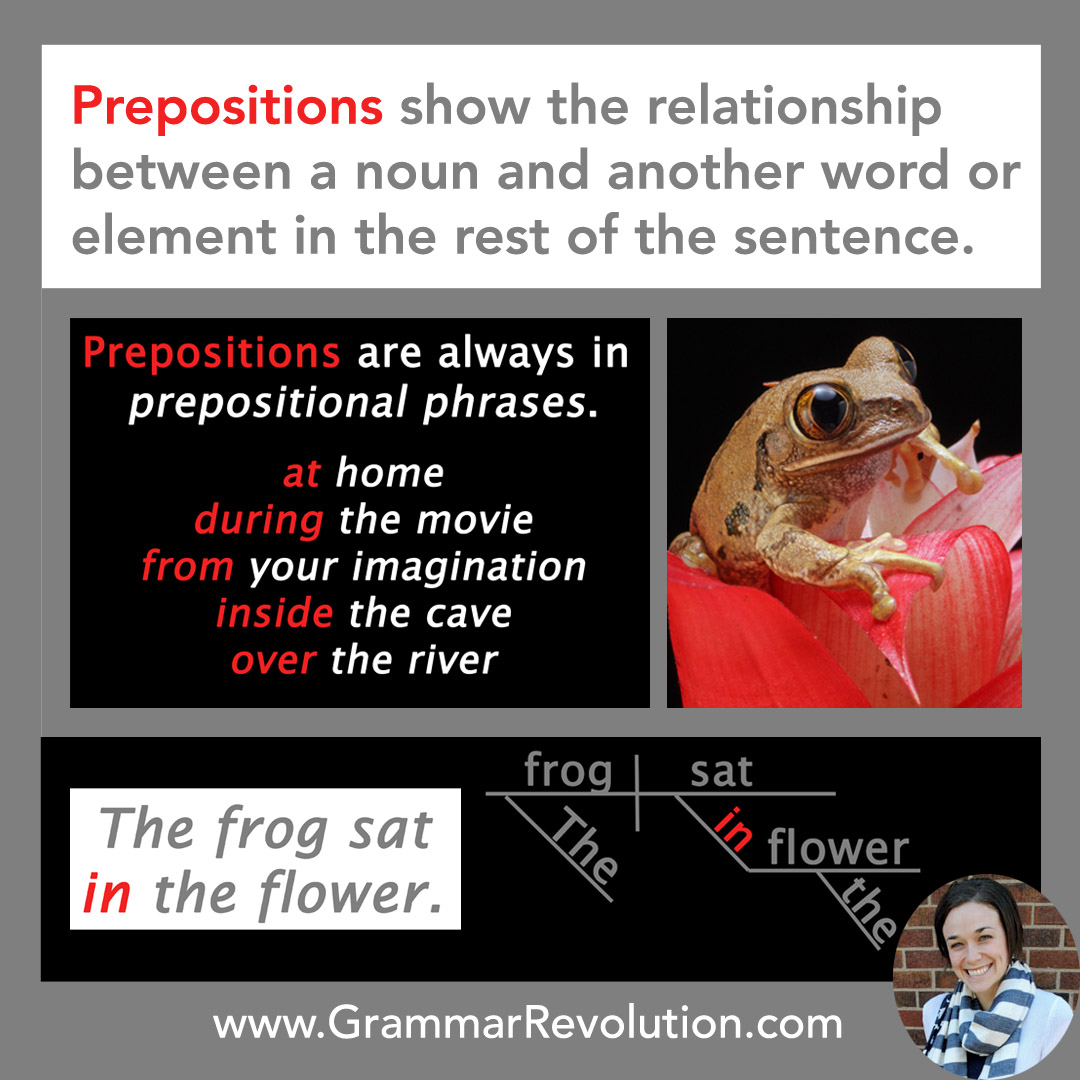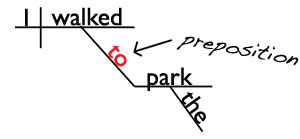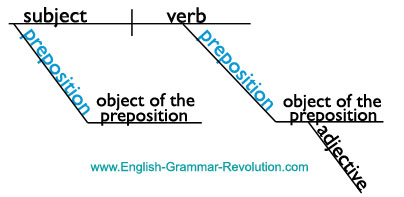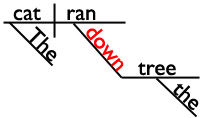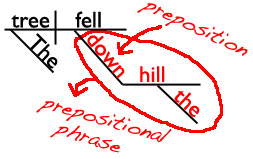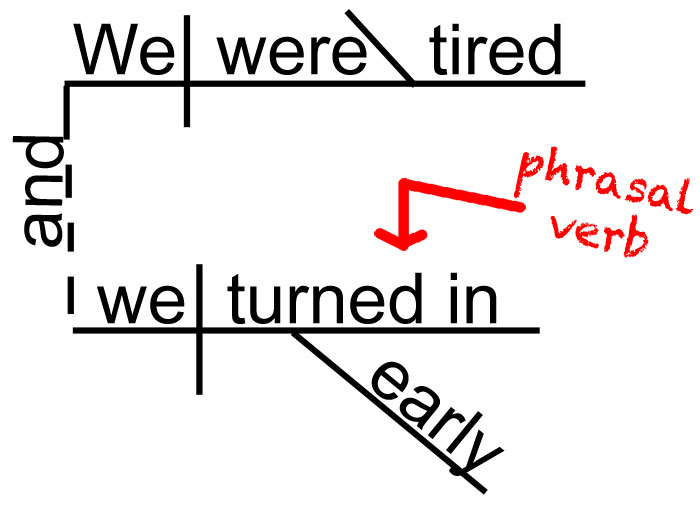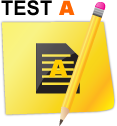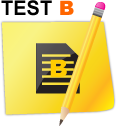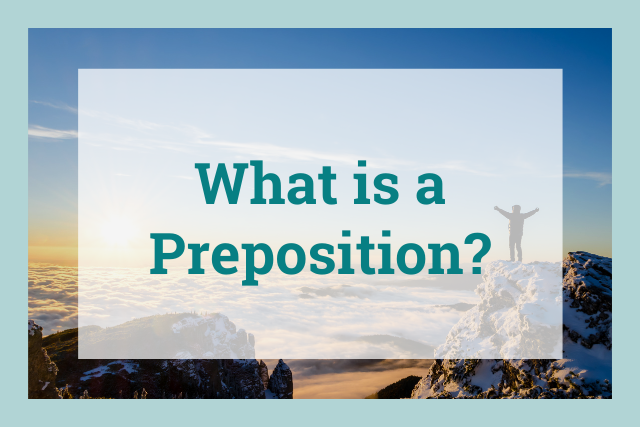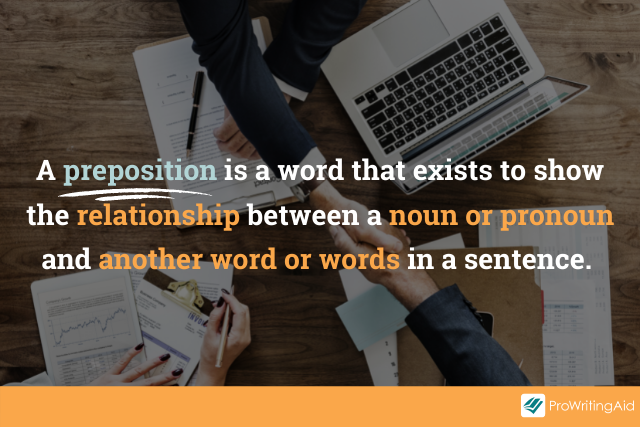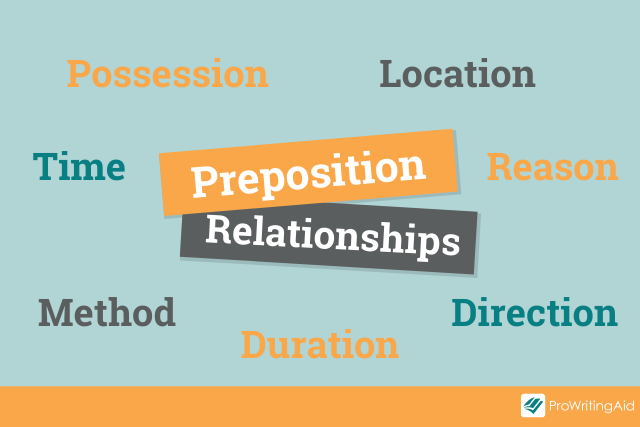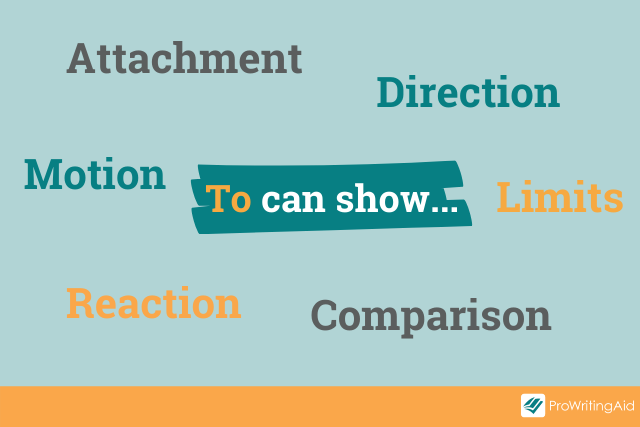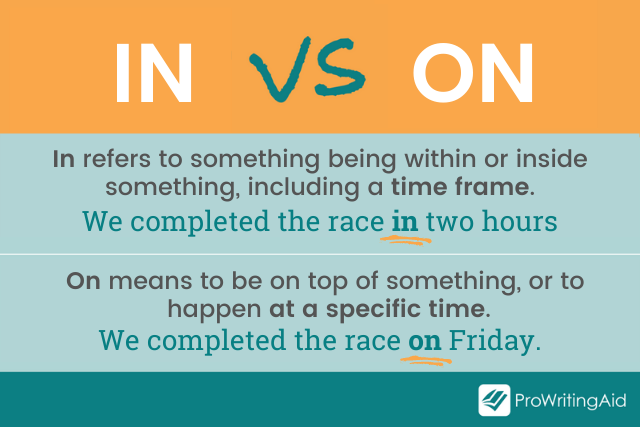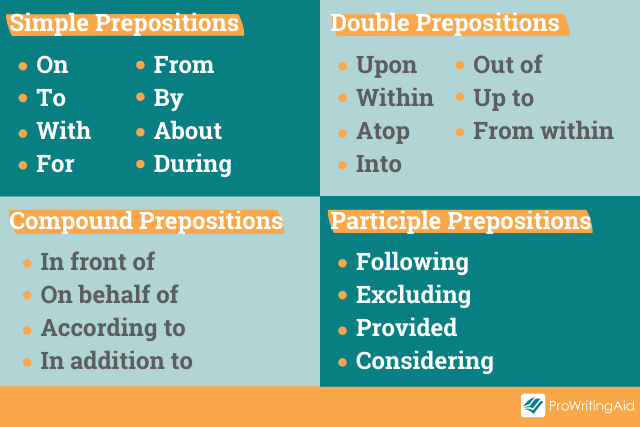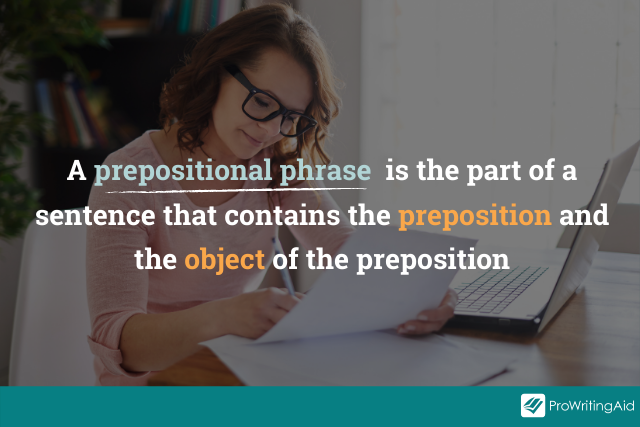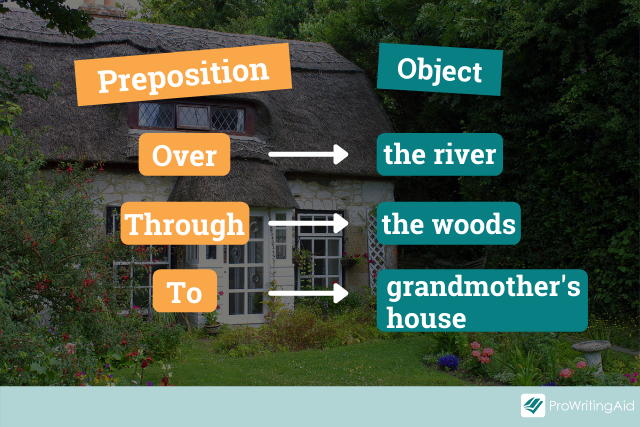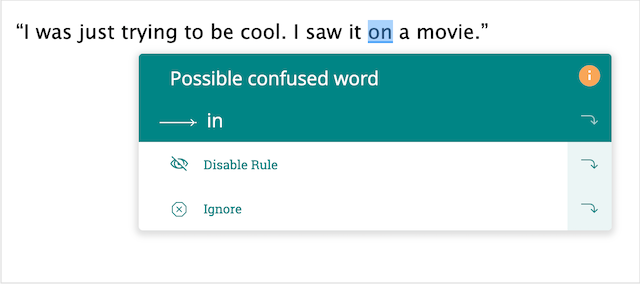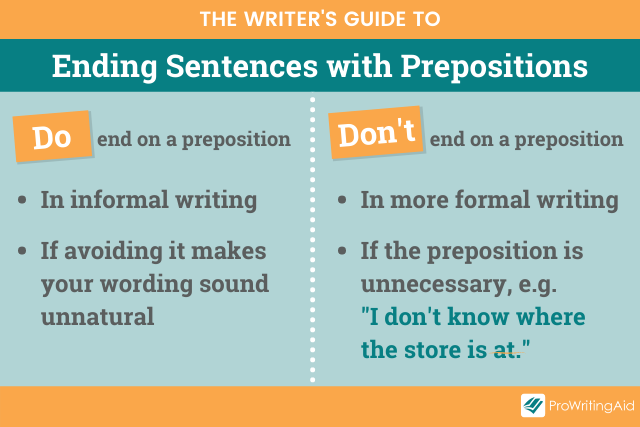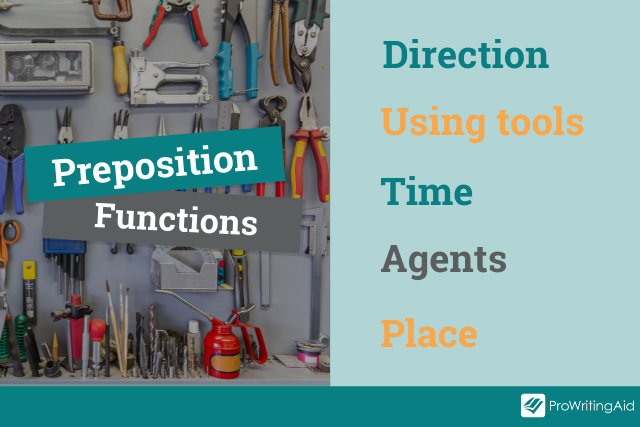Prepositions may be simple, so consisting of just one word, or complex, so consisting of two, three, or even four words. An example of a simple preposition is UNDER. Examples of complex prepositions are:
a two-word preposition: APART FROM
a three-word preposition: IN RETURN FOR
a four-word preposition: AS A RESULT OF
Here’s the video version of this article:
As there are lots of complex prepositions in English, I’m going to cover just the two-word prepositions in this article and discuss the others in future articles.
Two-word prepositions usually end in a simple preposition, like for example the complex preposition APART FROM, mentioned above, which ends in the simple preposition FROM.
Taking this into account, we can group the prepositions according to the simple preposition they end in.
Complex Prepositions with FOR:
AS FOR: As for Jane, she’ll be late. (= concerning Jane, talking about Jane)
BUT FOR: I would never have met her but for her brother. (= if it wasn’t thanks to her brother)
EXCEPT FOR: Everyone got a present except for Tom. (= with the exception of Tom)
SAVE FOR: The streets were empty save for some children. (= not including some children)
Complex Prepositions with FROM:
APART FROM: Apart from this incident, everything was fine. (= besides this incident)
ASIDE FROM: Aside from being boring, the movie was also too long. (= in addition to being boring)
AWAY FROM: She’s away from home. (= not at home)
Complex Prepositions with OF:
AHEAD OF: He quickly got ahead of me. (= to a place in front of me)
AS OF: The law takes effect as of March 15. (= on March 15)
BECAUSE OF: We had to stay home because of the storm. (= because there was a storm)
DEVOID OF: This student is devoid of any ambition. (= he doesn’t have any ambition)
EXCLUSIVE OF: All colors are allowed exclusive of blue. (= not including blue)
INSIDE OF: He was hidden inside of the bunker. (= inside the bunker)
INSTEAD OF: You can do it instead of me. (= rather than me)
IRRESPECTIVE OF: We decided to buy the house irrespective of the price. (= no matter what price)
OUT OF: He walked out of his room. (= from his room to the outside of it)
OUTSIDE OF: I’d like to live outside of the city. (= outside the city)
REGARDLESS OF: I’ll go there regardless of the weather. (= without considering the weather)
UPWARD(S) OF: I think he earns upwards of $5000. (= more than $5000)
VOID OF: The girl is void of charm. (= she has no charm)
Complex Prepositions with TO:
ACCORDING TO: According to my boss I work too little.(= as stated by my boss)
AS TO: I was at a loss as to how to say it. (= I didn’t know how to say it)
CLOSE TO: I won close to a million dollars. (= almost/nearly a million dollars)
CONTRARY TO: Contrary to what they say, I’m not rich. (= what they say is not true)
DUE TO: Due to the epidemic, our vacation was canceled. (= because of the epidemic)
NEXT TO: He was standing next to his brother. (= at his side)
OWING TO: She’s depressed owing to her sister’s death. (= because of her sister’s death)
PRELIMINARY TO: This preparatory training is preliminary to the finals. (= comes before the main thing, which is the finals)
PREPARATORY TO: Preparatory to the job interview, I read everything I could about the company on the Internet. (= in preparation for the interview)
PREVIOUS TO: She was elected president and previous to that she was vice president. (= before that she was vice president)
PRIOR TO: He graduated just prior to the war. (= just before the war)
RELATIVE TO: He’s quite strong relative to his body size. (= when measured against his body size)
SUBSEQUENT TO: Subsequent to the job interview, I got a really good offer. (= after the interview)
THANKS TO: Thanks to this device, you can measure the distance to the moon. (= with the help of this device)
UP TO: She’s not up to forgiving him. (= not ready to forgive him)
Complex Prepositions with WITH:
ALONG WITH: His sister came along with him. (= together with him)
TOGETHER WITH: There were three people together with the president and his wife. (= in addition to the president and his wife)
SUCH AS: I think you should have a pet, such as a dog or a cat. (= like for example a dog or a cat)
DEPENDING ON: Depending on your age, you may not be let in. (= whether you will be let in will be determined by your age)
AS AGAINST: Only 30% of people voted for him as against 51% for his opponent. (= in comparison to 51% for his opponent)
AS PER: I did everything as per your instructions. (= according to your instructions)
AS REGARDS: As regards your previous book, we’re thinking about a second edition. (= regarding your previous book)
RATHER THAN: He wants to buy a dog rather than a hamster. (= and not a hamster, instead of a hamster)
This list of prepositions will help you understand what a preposition is. But let’s start by having you learn the preposition song. Singing this song is an easy way to help you memorize some of the prepositions. I’ll sing it for you in the video below. 
The Preposition Song
above, across, after, at, around, before, behind,
below, beside, between, by, down, during, for, from,
in, inside, onto, of, off, on, out, through,
to, under, up, with
And that’s the preposition song!
This list contains one-word, two-word, and three-word prepositions. Sometimes, words act together to form one preposition.
WARNING: Keep in mind that the words on this list have the potential to be prepositions. Many of these words can also function as adverbs and other fun things. How can you tell the difference? I’ll teach you all the secrets below this list. 
A aboard, about, above, according to, across, after, against, ahead of, along, amid, amidst, among, around, as, as far as, as of, aside from, at, athwart, atop
B barring, because of, before, behind, below, beneath, beside, besides, between, beyond, but (when it means except), by, by means of
C circa, concerning
D despite, down, due to, during
E except, except for, excluding
F far from, following, for, from
I
in, in accordance with, in addition to, in case of, in front of, in
lieu of, in place of, in spite of, including, inside, instead of, into
L like
M minus
N near, next to, notwithstanding
O of, off, on, on account of, on behalf of, on top of, onto, opposite, out, out of, outside, over
P past, plus, prior to
R regarding, regardless of
S save, since
T than, through, throughout, till, to, toward, towards
U under, underneath, unlike, until, up, upon
V versus, via
W with, with regard to, within, without
Would you like to download these word lists?

- Word Lists for the 8 Parts of Speech (Nouns, Pronouns, Verbs, Adjectives, Adverbs, Prepositions, Conjunctions, & Interjections)
- 17 Pages
- Printable
- 100% Money-Back Guarantee
- Only $2.99
If you’d like to see even more prepositions, check out Wikipedia’s list of English prepositions page.
The Mean Thing About This List
(The Secret About Prepositions)
Many times, words on this list of prepositions don’t act as prepositions.
That’s not very nice, is it? You probably feel a bit like you were tricked. I’m sorry about that. I would change the rules of language if I could so that it would be easier for you to figure all of this out.
Of course, I can’t do that, but I can help you use that powerful brain of yours to tell when a word is a preposition and when it’s not a preposition. Are you ready? Good.
Here is the one thing that you need to remember: prepositions are ALWAYS in prepositional phrases.
Look at these examples of prepositional phrases with the eye of a detective. What do you notice about them?
I walked to the park.
The cat climbed up the tree.
They biked around the block.
All three of those prepositional phrases begin with a preposition (to, up, around) and end with a noun (park, tree, block), and that sums up what a prepositional phrase is.
Prepositional phrases begin with a preposition (to, up, around) and end with a noun or pronoun called the object of the preposition (park, tree, block).
But why? Why do prepositions need to be in prepositional phrases?
The answer comes to us when we look at the definition of a preposition.
Prepositions are words that show the relationship between a noun/pronoun and some other word in the sentence.
In order for a preposition to do its job (to show the relationship between a noun/pronoun and another word in a sentence), it needs to be followed by that noun or pronoun.
I sense that you may be furrowing your brow in a state of confusion right now, so it’s the perfect time for us to look at some sentence diagrams, which will make all of this visual.
Sentence diagrams are pictures of sentences that show us how the words are grammatically related.
In the diagram, the preposition to, which is on a slanted line, is connecting the noun park with the verb walked. It almost looks like a little bridge, doesn’t it? You can think of a preposition as a noun bridge if that helps.
to the park = prepositional phrase
to = preposition
park = noun (object of the preposition)
Prepositional phrases are always diagrammed like that. The preposition goes on a slanted line between the object of the preposition (the noun or pronoun at the end of a prepositional phrase) and a word in the rest of the sentence.
Why? Because the preposition is telling us how that special noun called the object of the preposition relates to the rest of the sentence. It acts as a little noun bridge.
Psst! You can learn more about how to diagram prepositions and prepositional phrases here if you’d like.
Preposition or Adverb?
Did you know that words on the preposition list are often used as adverbs rather than prepositions? It’s true! I’m going to use that fact to see if you’ve been paying attention. Are you ready for a tiny quiz? Great! In which sentence is down a preposition?
A. The cat ran down the tree.
B. The tree fell down.
I’ll give you a hint and show you the sentence diagrams of those sentences. (In which diagram is down a bridge between a noun and the rest of the sentence? That’s the diagram with the preposition!)
The cat ran down the tree.
The tree fell down.
Are you ready for the answer?
In sentence A, down is a preposition. It’s in the prepositional phrase down the tree.
In sentence B, the word down isn’t in a phrase, so it’s not a preposition. (In this sentence, down is an adverb telling us where the tree fell.)
The cat ran down the tree.
The tree fell down.
If you wanted to, you could change sentence B so that down was a preposition instead of an adverb. Can you think of how you would do that?
HINT: Add at least a noun (and probably an adjective as well) after down so that you create a prepositional phrase.
The tree fell down. (adverb)
The tree fell down the hill. (preposition)
Here are two other examples of words from this list functioning as adverbs and as prepositions. I’ll bet that you can see the difference now, right?
My sister just walked past. (adverb)
My sister just walked past us. (preposition)
Carefully crawl inside. (adverb)
Carefully crawl inside the tent. (preposition)
The moral of the story is that in order for a word to be a preposition, it must be in a prepositional phrase.
Preposition or Phrasal Verb?
As you saw above, words on this list of prepositions are only potential prepositions. We need to look at how each word-in-question is functioning within a sentence in order to say what part of speech it actually is.
I’m sure you remember that the words on this list are only prepositions when they are in prepositional phrases.
In our last example above (The tree fell down.), you saw how words from the list of prepositions could also function as adverbs.
Another common function of words on this list is for them to be a part of something called phrasal verbs. (I’ll underline the phrasal verbs below.) Notice that the words out, up, and off are not prepositions in these sentences.
I work out every Saturday.
He dressed up for the concert.
I was so tired that I nodded off during the class.
Phrasal verbs are two-word or three-word phrases that function as the verb in the sentence. They are made up of a verb (word, dressed, nodded) and a word from the preposition list (out, up, off), and they form a meaning that’s different from the meaning that the words have all by themselves.
When words like out, up, and off are in phrasal verbs, they have a special name. They’re called particles.
Let’s look at a sentence diagram with a phrasal verb. That way, you can see that particles (words from the preposition list that are functioning in phrasal verbs) are not prepositions.
We were tired, and we turned in early.
Look at the sentence diagram and notice that the word in isn’t on a little noun bridge. If in were a preposition, it would be diagrammed on a noun bridge like the word to in the diagram below.
Preposition or Conjunction?
I have a feeling that you already know where I’m going with this. 
A. I’m looking for bananas. (preposition)
B. He felt energized, for he had just won the competition. (conjunction)
In sentence A, for is in the prepositional phrase for bananas.
In sentence B, for is connecting the two clauses he felt energized and he had just won the competition.
Summary
Sometimes it helps to have a summary of everything you’ve learned. For your learning pleasure, here are the main points we covered on this page.
- Singing some of the prepositions to the tune of «Yankee Doodle» can help you memorize a handful of words from the preposition list.
- Words on the preposition list are not always used as prepositions.
- They are only prepositions when they are in prepositional phrases (preposition + noun).
- Words from the preposition list often act as adverbs. They can also be in phrasal verbs or function as conjunctions. In these cases, they are not prepositions.
Would you like to download these word lists?

- Word Lists for the 8 Parts of Speech (Nouns, Pronouns, Verbs, Adjectives, Adverbs, Prepositions, Conjunctions, & Interjections)
- 17 Pages
- Printable
- 100% Money-Back Guarantee
- Only $2.99
This is original content from https://www.english-grammar-revolution.com/list-of-prepositions.html
A complex preposition consists of two words taken together to perform the office of one connective. — A Practical Grammar of the English Language (1869) by Andrew Burtt
As the quote illustrates, complex prepositions are a REAL THING and have been around since at least 1869. Having said that, they do create a certain amount of confusion and debate, and modern grammar continues to challenge traditional grammar’s concept of all prepositions. In The Cambridge Grammar of English Language (2002), Rodney Huddleston writes, “One of the main respects in which the present grammar departs from traditional grammar is in its conception of prepositions.”
We have two basic groups of complex prepositions:
1. Two-Word Complex Prepositions
2. Three-Word and Four-Word Complex Prepositions
And here is a relatively complete list of both types.
Two-Word Complex Prepositions: 37 Total
1) according to, 2) adjacent to, 3) ahead of, 4) along with, 5) apart from, 6) as for, 7) as of, 
Three-Word and Four-Word Complex Prepositions: 45 Total
Note: The three-word and four-word prepositions are very similar in structure, except that the four-word prepositions contains an article (the or a).
1) as a result of, 2) at the expense of, 3) by means of, 4) by virtue of, 5) by way of, 6) for the sake of, 7) in accordance with / to, 
Valid Complex Prepositions
I’ve come across a number of lists of complex prepositions that would be a source of great debate for grammarians, and some lists even contain outright errors. Many questionable prepositions look quite similar to the prepositions listed above, but do not parse as complex prepositions, and don’t appear on most authoritative lists of prepositions.
I’ve chosen to omit words that are debatable. I’ve also omitted rarely used and archaic complex prepositions. For this reason, you may be able to find a few more complex prepositions than the 82 I have listed above. Having said that, I have confirmed that at least one authoritative source has listed each of these 82 complex prepositions as being valid. To some extent, complex prepositions are created through idiomatic use, and I didn’t want to include any complex prepositions that might be debatable or that are just plain wrong.
What are Complex Prepositions? Answer: Wolf Packs
Young student writers want to understand how and why groups of words (phrases, clauses, compound words etc.) can act just like one word. The short answer is this: That’s just how language works. A longer answer would involve a study of syntactic slots.
I’ve found one more technique that makes things quite clear for young grammarians: It’s an analogy and a metaphor from the animal kingdom. I call a group of words that functions as a single unit a Wolf Pack. (Note: I never overuse terms like this; this is simply a teaching tool that makes sense to students.) Of course, a teacher can use ants or killer whales or dolphins or lions or birds in flight, but I’ve found that a Wolf Pack is the best metaphor. And if you can find a nice documentary clip of a wolf pack in a chase in the snow, all the better.
All prepositional phrases are Wolf Packs, and prepositional phrase that contain complex prepositions compound the concept.
• Complex Prepositions = Wolf Packs = Function as a single unit, and function as a single part of speech (prepositions).
• Prepositional Phrases = Wolf Packs = Function as a single unit, and function as a single part of speech (primarily adverbs and adjectives).
Debating and Parsing Complex Prepositions
If people wish to debate complex prepositions, it comes down to debating how one should parse a sentence. Parsing involves breaking a sentence into parts based on how the parts connect syntactically. Parsing sentences has a long history in grammar instruction, but plenty of modern research indicates that it’s not an effective use of class time. Having said that, I do recommend becoming familiar with a few different online parsers: e.g., Stanford, Berkeley, and Carnegie Mellon. Please note, all these online parsers are based on modern linguistics and don’t align perfectly with traditional grammar or with school grammar. Furthermore, different parsers deliver different results. Still, they are extremely interesting and useful tools.
The following parsing example will help you understand what goes on inside a complex preposition. Grammarians do debate and argue about complex prepositions, and parsers do deliver different results. Here are two different parsing results for one very simple sentence.
The sentences is this: Kim rested prior to the meeting. The complex preposition is this: prior to.
| Parsers | Adverb | Prepositional Phrase | |
|---|---|---|---|
| 1. Carnegie & Stanford | Kim rested | prior. | |
| 2. Stanford | Kim rested | prior | to the meeting. |
| 3. Carnegie | Kim rested | prior to the meeting. |
Both parsers agree that by itself “prior” is an adverb. However, the parsers disagree on how to treat “prior to.” By studying this one example and the different interpretations, you understand a great deal about complex prepositions. However, you will understand them even better and be able to spot them and analyze them better once you understand the common complex-preposition patterns.
Complex Preposition Patterns
Complex preposition contain multiple words. But what kinds of words? Individually, most of the words function as prepositions, adjectives (including participle adjectives), adverbs, conjunctions, nouns, and articles. These words usually combine according to specific patterns.
Two-Word Complex Preposition Pattern: Total 37
The two-word prepositions are pretty straightforward. You will notice that I provide a frequency count for the second word. Many of the first words can be used as several different parts of speech, so there is no way to come up with an accurate count.
• First Word: The first word is usually an adjective (including participle adjective), adverb, or conjunction.
• Second Word: The second word is usually one of these prepositions: to (16), of (9), from (4), for (3), with (2), misc. (4).
Three-Word and Four-Word Complex Preposition Pattern: Total 45
These complex prepositions create a phrase that can be interpreted as two prepositional phrases in a row. They all contain two prepositions and follow these two patterns:
1. Preposition + Noun + Preposition (Total: 36)
2. Preposition + Article (the, a) + Noun + Preposition (Total: 9)
Each of these 45 complex preposition uses two prepositions, and 94 prepositions are used in total. Surprisingly, only 8 individual prepositions are used: of (28), in (27), to (15), with (10), on (10), by (3), as (1), at (1).
Be sure to read:
1. 82 Color-Coded Complex Prepositions in Prepositional Phrases – Example Sentences with Analysis
2. 74 Color-Coded Prepositional Phrase Example Sentences with Analysis
Many prepositions we use are single words like in, on and at. These are called simple prepositions.
There are also prepositions which are made up of two or three words. These complex prepositions act in the same way as single-word prepositions.
How many of these two-word prepositions are you familiar with?
Let me know if you have any questions about the meanings of any of these sentences.
Link:Quiz on prepositions
- 1 — The weather will be great ___ the newspaper.
according from
according to
according of - 2 — They arrived late ___ the heavy traffic.
because of
because to
because from - 3 — Amir lives ___ his work.
close of
close from
close to - 4 — There must have been an accident on the road ___ us.
ahead of
ahead from
ahead to - 5 — ___ Sally, everyone was at the conference.
Aside from
Aside of
Aside to - 6 — We’re going to marry ___ what anyone thinks.
regardless to
regardless of
regardless from - 7 — He takes the train ___ his fear of driving.
- 8 — We achieved our sales target ___ all your hard work.
thanks with
thanks to
thanks from - 9 — It’s open every day ___ Sundays.
except from
except for
except with - 10 — I’ll ride in the carriage ___ you and Natalie.
along from
along for
along with
Bookmark/Search this post with:
Before writing about the List of Prepositions, we have to know about the prepositions.
What is Preposition?
The preposition is a word that correlates between two different words or phrases, usually about the time or position. It places before the noun or a pronoun in a sentence that relates to the rest of the sentence and makes it meaningful by telling us what is exactly happening in the sentence.
In the English Language, there are various prepositional words, and each of these is used according to their use in a sentence.
There are certain varieties of the preposition, based on their use like,
Basic examples of prepositions
A] One-word Prepositions:
- Common Prepositions
- Seldom used Prepositions
B] Complex Prepositions:
- Prepositional Phrases
- Prepositions with verbs
- Prepositions with Idioms.
One word Common prepositions:
Common prepositions are those prepositional words that are used mostly in sentences.
Here is the list of some common prepositional words,
- About, above, across, after, against, among, around, at
- Before, behind, below, beside, between, by
- Down, during
- For, from
- In, inside, into
- Near
- Of, off, on, out, over
- Through, towards, to
- Under, up
- With
Examples
- About:
- What about your health
- We are about to reach our destination.
- Above:
- An eagle is flying above the clouds.
- The water level goes above the marking line due to heavy rainfall.
- Across:
- There is a huge mountain across the river.
- A baby is going across the road
- After:
- We went home after the party was over.
- I will go to sleep after 10 o’clock.
- Against:
- What do you have against me?
- The man is running against the train.
- Among:
- He is the eldest son among all.
- He is not comfortable sitting among us.
- Around:
- We all are sitting around the table.
- Her age was around 80.
- At:
- We are at the party.
- Come to my home at 8 o’clock.
- Before:
- He came before any other.
- The train was left before its time
- Behind:
- He is doing something behind my house.
- She is coming from behind.
- Below:
- He is swimming below the surface.
- I will not decrease its price below the cost price.
- Beside:
- She lives beside this colony.
- He was sitting beside my aunt.
- Between:
- I will catch you between 1 to 4 PM.
- He overtakes his bike between two trucks.
- By :
- She was murdered by any sharp metal object.
- We will provide you with the rest part by this evening.
- Down:
- He fell down on the ground.
- You go straight, then step down the hill and continue your walk.
- During
- Nobody is allowed to go out during the lecture.
- He was sleeping during the day.
- For:
- Let us go out for a trek.
- Smoking is bad for your health.
- From:
- I wish her a happy new year from my side too.
- He bought this shirt from supermart.
- In:
- He is working in this location.
- We are in the zoo now.
- Inside:
- The puppy is sitting inside the box.
- I have some cash inside my pocket.
- Into:
- Water turns into ice at 0-degree celsius.
- Jayson cut the eraser into two and gave them one each.
- Near:
- His office is just near my school.
- She stands near the statue.
- Of:
- She came to meet me at the end of the month.
- I am in the middle of something.
- Off:
- This shop is giving a 30% off sale on clothes.
- Please take off your shirt.
- On:
- We started our project on that site.
- He is sitting on the table.
- Out:
- He scored 79 marks out of 100 marks.
- She is out of the world.
- Over:
- That airplane is flying over the buildings.
- The village is situated just over the mountain.
- Through:
- The bullet is passing through this hole.
- We had gone through bad situations.
- Towards:
- She is looking towards me for the last hour.
- He has some responsibilities towards his family.
- To:
- You are coming to London.
- This little girl waited for a long time to wish you personally.
- Under:
- He knows how to swim under-water.
- He escaped from the cops on a boat under the bridge.
- Up:
- Jack and Jill both went up the hill.
- He strikes a ball up the sky.
- With:
- Are you coming with us?
- I pulled her out with the help of this rope.
Seldom used Prepositions:
Seldom used prepositions are those prepositional words that are rarely used in sentences.
Here is the list of some seldom-used prepositional words,
Examples:
- Aboard:
- She climbed aboard the ship.
- Welcome aboard this flight to Mumbai.
- Along:
- We traveled along with the boat in the Arabian Sea.
- The bedroom is along with the kitchen.
- Amid:
- She hadn’t listened to her amid the voice.
- We were lost amidst the world cup this year.
- As:
- My brother is working as a manager at this hotel.
- Sugarcane is as sweet as sugar.
- Astride:
- He sat astride the Terries.
- She slept astride on the sofa.
- Alongside:
- Their car is standing alongside our car.
- My roll number is alongside my friend in the exam hall.
- Beneath:
- She hides beneath the bed.
- He stands beneath the building.
- Beyond:
- This difficult stunt is beyond my limits.
- Nobody can break the record beyond him.
- But:
- Everyone was present, but my friend didn’t.
- He agreed to work here, but he has certain conditions.
- Bar:
- She stood on the table bar her friend did not.
- I will come to the bar after 8 o’clock.
- Concerning:
- Your parents came to my house, and they discussed with us concerning your sister’s marriage.
- I want to make some changes because I am concerned about you.
- Considering:
- Considering the demand, I will increase production.
- This race is finished, considering the rules.
- Counting:
- If we start counting now, it will take 2 hours to finish.
- The net cash is only $20k after counting.
- Cum:
- He invented a bicycle-cum-bike.
- His mind is so sharp that he can sleep-cum-talk at the same time.
- Despite:
- We went on a picnic despite any arrangement.
- He finished the race despite filling petrol in it.
- Except:
- You can purchase any other cell phone except Vivo. That is out of stock.
- I will go anywhere for dinner except for this restaurant.
- Exclude:
- The total amount is 470$, excluded taxes.
- He attends every seminar excluding Sundays.
- Following:
- The red t-shirt guy is following me.
- Write down the following sentences.
- Given:
- She has given all her money to the kidnapper already.
- All students will have to finish their paper at a given time.
- Gone:
- Let us go now; some of them have already gone away.
- Your turn is gone earlier; now, it is my turn.
- Including:
- We provide you with special treatment in our hotel, including VIP services.
- Like:
- His behavior is like his brother.
- I want a refreshing juice like Lemon soda.
- Less:
- Its qualities are less than the previous one.
- 100 less 20 equals 80.
- Minus:
- Today’s temperature is minus 12 degrees Celsius.
- Eighty minus ten equals’ seventy.
- Next:
- The next candidate is absent.
- Call the cops standing next to you.
- Notwithstanding:
- Notwithstanding the quality, I refuse to buy it.
- The hot iron is notwithstanding the strokes of the hammer.
- Onto:
- He jumped onto the trampoline from Terries.
- The dog jumped onto the fence.
- Opposite:
- Opposite poles of a magnet repel each other.
- She sat opposite my seat on the bus.
- Outside:
- He has not escaped outside the city.
- The hot lava came outside from volcanoes.
- Past:
- The time half-past ten.
- After an accident, I forgot my past memories.
- Per:
- His vehicle runs at a speed of 120 miles per hour.
- She charges $50 per photo.
- Plus:
- Twenty-five plus seven equals thirty-two.
- We won the match, and this is our plus point for qualifying for the finals.
- Pro:
- This phone is a pro version of my old phone.
- We are playing a pro league match in this tournament.
- Pending:
- My payment is still pending.
- She had completed all her pending works on this holiday.
- Regarding:
- I will discuss this with the management regarding your promotion.
- Regarding this situation, I purchased a new machine for our work.
- Round:
- He stands outside the 30 yards round.
- The bullet motions round, not straight.
- Respecting:
- I am talking too politely with you respecting your age.
- Are you still respecting your teachers?
- Save:
- We all present here because he saves all of us at that moment.
- The superhero is always ready to save the world.
- Since:
- We have been friends since 1980.
- The museum had been closed since 1800 AD.
- Than:
- My brother is stronger than his brother.
- I have an expensive toy car than anyone.
- Till:
- The shop will open till Saturday.
- Throughout:
- We have done nothing throughout the day.
- Touching:
- He still starts his morning touching his parents’ feet.
- Your voice is touching my soul.
- Underneath:
- The money is hidden underneath the cushion.
- The transformer is fixed underneath the poles.
- Upon:
- The spaceship needs extra force to go upon the earth.
- An author has started writing a book upon his struggle.
- Until:
- You have to wait until I come.
- The match will be continued until one loses.
- Unlike:
- You have so many, unlike characteristics.
- He is working hard, unlike his younger brother.
- Versus:
- The match of David versus Jayul will start on time.
- You have to select Range Rover versus Land Rover.
- Via:
- This ship travels to South Africa via Cambodia.
- The International flight to Dubai ready to take off from Chennai, taking a route via Delhi.
- Within:
- Accessories also come within the box.
- We are taking off our jet within two minutes.
- Without:
- I wore this blazer without a waistcoat inside.
- Please do not leave without eating food.
- Worth
- I bought an Apple iPhone X worth USD 2565$ only.
- Your good behavior is worth it.
Complex Prepositions or Prepositional phrases:
A complex preposition is a combination of two words. It may be a combination of
- a preposition and a phrase, Prepositional Phrases:
- A preposition and a verb, Prepositions with verbs:
- preposition with an idiom, Prepositions with Idioms, respectively.
Examples
Here is a list of complex prepositions,
- According to:
- According to my father, I don’t know how to eat.
- Ahead of:
- She was seated ahead of my seat on the bus.
- Along with:
- Have some biscuits or snacks along with Tea.
- Apart from:
- He has parked his car apart from his house.
- As for:
- As for me, this one is outstanding.
- Aside from:
- We have another day aside from this evening.
- As per:
- The exam will start on time as per the rules.
- As well as:
- He read as well as writing at the same time.
- Away from:
- The thief ran away from the cops and escaped.
- Because of:
- We failed to enjoy it because of the poor weather.
- But for:
- Usually, I refused to work with him, but for you, I agreed.
- By means of:
- You can climb the mountain by means of ropes.
- Close to:
- Your vehicle stands very close to my car.
- Contrary to:
- Contrary to desires, he failed the competitive exam.
- Depending on:
- We will go for a picnic by bus, depending on the strength.
- Due to:
- Due to the rain, the match was delayed.
- Except for:
- All are present at the party except for Shong,
- Forward of:
- He is driving his vehicle just forward of our vehicle.
- Further to:
- Further to this topic, I have to talk with your guardian.
- In addition to:
- There are a total of twelve players in addition to me in the team.
- In the face of:
- He looks at me like a stranger in the face of a big question mark for him.
- In favor of:
- All members are in favor of this decision.
- In between:
- His bike is in between the two-sport cars.
- In front of:
- No one will stand in front of the door.
- In spite of:
- We chose these curtains in spite of those ones.
- Instead of:
- He went on the road by walking instead of a car.
- In view of:
- In view of the celebration, we have decided to stay here.
- Irrespective of:
- Don’t try to judge me irrespective of my behavior.
- Near to:
- There is a workshop near to my school.
- Next to:
- His roll number is next to my seat in the hall.
- On account of:
- We are going to announce a holiday on account of the boss’s wedding celebration.
- On behalf of:
- You are appointed here on behalf of your colleague.
- On top of:
- We are sitting on top of the building.
- Opposite to:
- Your friend is standing opposite to the music system.
- Other than:
- You can order anything other than Tequila.
- Out of:
- Pick one cloth out of these ones.
- Outside of:
- Throw the ball outside of the stadium.
- Owing to:
- We can afford one AC owing to the monthly income.
- Preparatory to:
- We made a presentation preparatory to the seminar.
- Prior to:
- He never dares to go to the basement prior to living in the hostel.
- Regardless of:
- I won’t help you, regardless of our relationship, even if you pay for help.
- Save for:
- This is money that I have saved for a long time.
- Thanks to:
- We are in good condition, thanks to our Manager for his kindness.
- Together with:
- He would like to have some water together with the whiskey.
- Up against:
- China is fighting back up against the powerful nation of America.
- Up to:
- I will work in this building for up to ten years.
- Up until:
- We played up until they lost the game.
- With regard to:
- We would like to speak about your father with regard to his bravery in the Army.
- With reference to:
- With reference to your mail, I’m sending you the details of our company.
Prepositions in English! Learn preposition definition, different types of prepositions, and how to use them correctly with ESL image and prepositions list in English.
Prepositions are the words which are used to connect the different nouns, pronouns, and phrases in a sentence. It functions to introduce or precede the word or phrase to be connected, called the object of the preposition.
The preposition usually indicates the relation between the words it is connecting. It tells whether the words are connected in actual space or a place, or related through time or are they part of a thought or process.
Prepositional phrases are the preposition and its object and any adjectives or adverbs that were applied to the object. The prepositional phrase as a whole can also be used as a noun, adverb or adjective.
Example: He found the book on the table.
- Here the preposition is ‘on’ as it shows the relation in place between the book and the table.
- The prepositional phrase is ‘on the table’ which is acting as an Adverb telling where the book was found.
Example: She went to sleep early.
- In this sentence the preposition is ‘to’ which is introducing where or in what state had the noun gone into.
Example: Her house was beside a steep hill.
- The preposition here is beside which is telling the place where the house was.
- The prepositional phrase is ‘beside a steep hill’ which is acting as an adverb.
Types of Prepositions
Simple Prepositions
These prepositions are constructed by only one word like: On, at, about, with, after, for, etc.
Example: He found the book about dogs on the table, in the bedroom.
Here is a list of common simple prepositions (preposition examples):
- For
- By
- At
- On
- Of
- Off
- To
Double Prepositions
These prepositions are formed by combining two words or two Simple Prepositions: Into, within, upon, onto, etc.
Example: The dog jumped onto the bed and left marks upon the sheets.
Here is a list of common double prepositions (preposition examples):
- Into
- Onto
- Upto
- From Behind
- From Beneath
- Out Of
- Upon
Compound Prepositions
These prepositions are two-word prepositions.
According to, because of, next to, due to, etc.
Example: He was upset because of his son’s behaviour.
Here is a list of common compound prepositions (preposition examples):
- Across
- Along
- Beside
- Behind
- Before
- Without
- Inside
Participle Prepositions
Participles are actually verbs that end with ‘-en’ or ‘-ing’. As these verbs were commonly and very popularly used as prepositions by the people, these verbs have been given special status as prepositions.
Considering, during, given, including, etc.
Example: Considering what he had to work with, he did a pretty good job.
Here is a list of common participle prepositions (preposition examples):
- Concerning
- Notwithstanding
- Pending
- During
- Given
- Failing
- Excluding
Phrase Prepositions
These prepositions are a combination of the preposition + a modifier (optional) + the object. They are used to modify the nouns, verbs or sentences and also complete clauses.
At home, in time, with me, from my father, under the blanket, etc.
Example: The clothes left on the bed have been ironed and kept back.
Here is a list of common phrase prepositions (preposition examples):
- At high speed
- By all means
- For a change
- In accordance with
- On a journey
- Out of curiosity
- To the best of
Prepositions can only be learnt by memory; unfortunately there is no method or particular way to recognize and learn them.
List of Prepositions
These classifications above are based on the construction of the prepositions themselves. Apart from this, prepositions are also categorized based on their use in a sentence as:
- Prepositions of place.
- Prepositions of time.
- Prepositions of movement.
Prepositions of Place
What are prepositions of place?
Prepositions of place refer to those prepositions that can be used to show where something is located. There are three basic prepositions of place: in, on, at.
For example:
- At college
- At home
- At reception
- In a taxi
- In the sky
- In the building
- On the way
- On the radio
- On the page
- …

Prepositions of Time
What are prepositions of time?
The prepositions are often used to refer to times and dates. There are three basic prepositions of time: at, in, on
For examples:
- At 10.30am
- At 8 o’clock
- At bedtime
- At breakfast
- In 16 year’s time
- In 1991.
- In December
- On Christmas
- On Friday
- On holiday
- …

Prepositions of Movement
What are prepositions of movement?
Prepositions of movement show movement from one place to another. There are 9 basic prepositions that pertain to movement: To, Towards, Through, Into, Across, Over, Along, In, On
For example:
- I’m going to the doctor’s.
- Can you direct me to the nearest post office?
- He was walking menacingly towards me.
- The train went through the tunnel.
- He walked across the road.
- …

Prepositions in English | Infographic
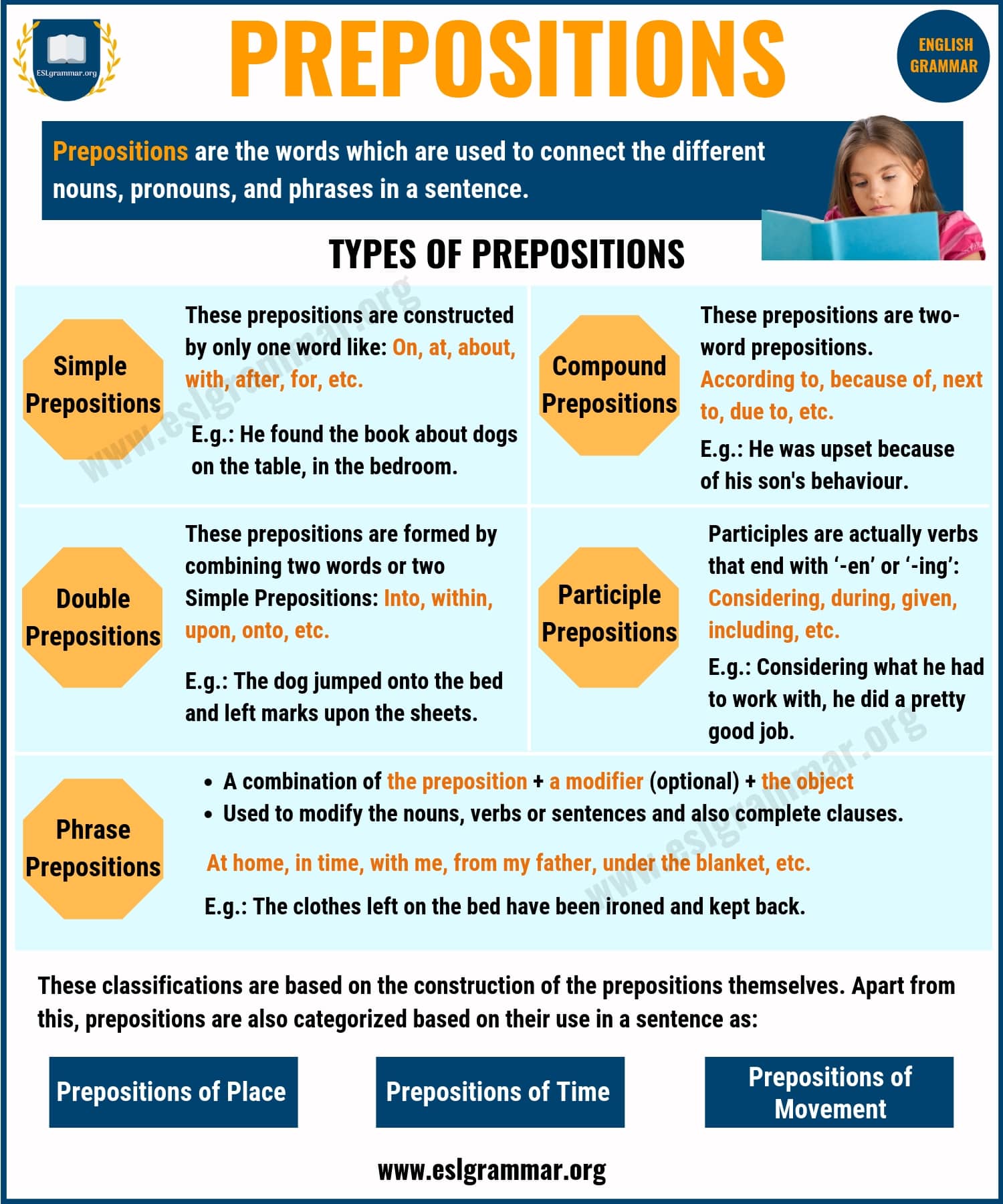
Prepositions are a class of words that indicate relationships between nouns, pronouns and other words in a sentence. Most often they come before a noun.
The good news is that they never change their form, regardless of the case, gender etc. of the word they are referring to
Content
- Simple or Compound prepositions
- Prepositions of movement
- Prepositions of Place
- Prepositions of time
1. Simple or Compound prepositions
Prepositions are classified as simple or compound.
Simple prepositions are single word prepositions — across, after, at, before, between, by, during, from, in, into, of, on, to, through, under, with and without are all single word prepositions.
- The newspaper is on the chair.
- The cat is under the table.
Compound prepositions are more than one word — in between and because of — are prepositions made up of two words — in front of, on behalf of are prepositions made up of three words.
- My office is in between the bank and the post office.
- .
- My car is in front of my flat.
2. Prepositions of movement
Prepositions can be used to show movement. For example: to, through, across.
We use to to show movement with the aim of a specific destination.
- I moved to Paris in 1999.
- He went to the cinema at 3 pm.
We use through to show movement from one side of an enclosed space to the other side.
- The train went through the tunnel.
- He walked quickly through the door.
We use across to show movement from one side of a surface or line to another.
- She swam across the lake.
- He walked across the road.
3. Prepositions of Place
Prepositions can be used to show where something is located.
The prepostions — at, on, in
We use at to show a specific place or position.
- I live at 36 Palace Road.
- I am waiting at the bus stop.
We use on to show position on a horizontal or vertical surface.
- There is a lot snow on the roof.
- The dog is sitting on the chair.
We also use on to show a position on streets, roads, etc.
- I used to live on Palace Road.
- There is a petrol station on the corner of the street.
We use in to show that something is enclosed or surrounded.
- She is in a taxi.
- The cat is in the garden.
We also use in to show position within land-areas (towns, counties, states, countries, and continents).
- I used to live in Nottingham.
- I live in America.
More prepositions of place
- They ran after the thief.
- I found my handbag among my luggage.
- The student was sitting at her table.
- My flat is behind the supermarket.
- The plates are in the cupboard.
- My car is parked in front of the supermarket.
- The post office is by / next to / besides the bank.
- The picture is hanging on the wall.
- The notice is above the door.
- I put the tablecloth over the table.
- The temperature was below zero degrees.
- The boy was sitting under a tree.
4. Prepositions of time
Prepositions can be used to show when something happens. (time, day, date, month, year, morning, afternoon, evening,night, season)
Prepositions of time — at, on, in.
- I go to work at 8.00 every day. (time)
- I’ll see you on Tuesday. (day)
- I have an exam on the 21st. (date)
- My birthday is in December. (month)
- I was born in 1965. (year)
- I get up in the morning. (morning)
- I have a meeting in the afternoon (afternoon)
- I go home in the evening after work. (evening)
- I go to bed at night. (night)
- It usually snows in the winter. (season)
Tests:

From Wikipedia, the free encyclopedia
This is a list of English prepositions.
Prototypical prepositions[edit]
The following are single-word prepositions that can take a noun phrase complement following the preposition. Prepositions in this section may also take other kinds of complements in addition to noun phrase complements. Prepositions marked with an asterisk can be used transitively or intransitively; that is, they can take noun phrase complements (e.g., he was in the house) or not (e.g., he was in).
- a[1]
- aboard*[2]
- about*[2][3]
- abt. (written abbreviation)[4]
- above*[2][3]
- abreast[5]
- absent[6]
- across*[2][3]
- after*[2][3][7]
- against*[2][3]
- along*[2][3]
- aloft*[2][8]
- alongside*[2]
- amid[2][3][9]
- amidst[2][3][9]
- mid[2]
- midst[2]
- among[2][3][9]
- amongst[2][3][9]
- anti[3][10]
- apropos*[7][11]
- around*[2][3]
- round*[2][3]
- as[2][3][9]
- aslant[12]
- astride[13]
- at[2][3][9]
- @ (written alternative)[14]
- atop[3][15]
- ontop (nonstandard)[citation needed]
- bar[9][16]
- barring[17][18]
- before*[2][3][7]
- B4 (written abbreviation)[19]
- behind*[2][3]
- below*[2][3]
- beneath*[2][3]
- neath[20]
- beside[2][3][9]
- besides*[2][3][7]
- between*[2][3][7]
- ‘tween[21]
- beyond*[2][3]
- but[3][22]
- by*[2][3][7]
- chez[9][23]
- circa[3][9][24]
- c., ca. (abbreviations)[24]
- come[9]
- concerning[17][18]
- contra[9]
- counting[17][18]
- cum[25]
- despite[2][3][9]
- spite (abbreviation)[citation needed]
- down*[2][3]
- during[2][9]
- effective[6]
- ere[9]
- except[2][3]
- excepting[17][18]
- excluding[17][18]
- failing[17][18]
- following[17][18]
- for[2][3]
- 4 (abbreviation)[citation needed]
- from[2][3][9]
- in*[2][3]
- including[17][18]
- inside*[2][3]
- into[2][3][9]
- less[9][26]
- like[2][3][9]
- minus[2][9]
- modulo[9]
- mod (abbreviation)[27]
- near*[2][3]
- nearer (comparative)[3][28]
- nearest (superlative)[3]
- next[2]
- notwithstanding* (also postpositional)[2][3]
- of[2][3][9]
- o’ (written alternative; informal)[29]
- off*[2][3]
- offshore[30]
- on*[2][3][7]
- onto[2][3][9]
- opposite[2][3][6]
- out[3][31]
- outside*[2][3]
- over*[2][3]
- o’er[32]
- pace[3][9][33]
- past*[2][3]
- pending[3][34]
- per[3][9][35]
- plus[2][9]
- post[36]
- pre[37]
- pro[3][38]
- qua[3][39]
- re[3][9]
- regarding[17][18]
- respecting[17][18]
- sans[3][9]
- save[9][40]
- saving[17][18]
- short[citation needed]
- since*[2][3][7]
- sub[41]
- than[2][3][9]
- through*[2][3][7]
- thru (informal)[42]
- throughout*[2][3]
- thruout (simplified spelling)[43]
- till[3][9][44]
- times[9]
- to*[2][3]
- t’ (abbreviation)[45]
- 2 (abbreviation)[citation needed]
- touching (archaic)[17][18][46]
- toward, towards[2][3]
- under*[2][3]
- underneath*[2][3]
- unlike[2][3][9]
- until[2][3][9]
- unto (poetic)[47]
- up*[2][3][9]
- upon[2][3]
- versus[9][48]
- vs., v. (abbreviations)[48]
- via[2][3][9]
- vice[49] (formal)[citation needed]
- vis-à-vis[3][9][50] (formal)[citation needed]
- wanting[17][18]
- with[2][3][9]
- w/, w. (abbreviation)[51]
- c̄ (abbreviation in prescriptions)[52]
- within*[2][3]
- w/i (abbreviation)[citation needed]
- without*[2][3][7]
- ‘thout[53]
- w/o (abbreviation)[54]
Intransitive prepositions[edit]
The following are single-word intransitive prepositions. This portion of the list includes only prepositions that are always intransitive; prepositions that can occur with or without noun phrase complements (that is, transitively or intransitively) are listed with the prototypical prepositions. Note that dictionaries and grammars informed by concepts from traditional grammar may categorize these intransitive prepositions as adverbs.
- abroad[2][55][a]
- adrift[2][55]
- aft[2][55]
- afterward(s)[2][57]
- ahead[2][55][b]
- apart[2][55]
- ashore[2][55]
- aside[2][55][c]
- away[2][55]
- back[2][55]
- backward(s)[2][55]
- beforehand[2][57]
- downhill[2][55]
- downstage[2][55]
- downstairs[2][55]
- downstream[2][55]
- downward(s)[2][55]
- downwind[2][55]
- east[57]
- eastward(s)[2][55]
- forth[2][55][d]
- forward(s)[2][55]
- heavenward(s)[2][55]
- hence[2][55]
- henceforth[2][57]
- here[2][55]
- hereby[2][7]
- herein[2][7]
- hereof[2][7]
- hereto[2][7]
- herewith[2][7]
- home[2][55]
- homeward(s)[2][55]
- indoors[2][55]
- inward(s)[2][55]
- leftward(s)[2][55]
- north[57]
- northeast[57]
- northward(s)[2][55]
- northwest[57]
- now[2][57]
- onward(s)[2][55][e]
- outdoors[2][55]
- outward(s)[2][55]
- overboard[2][55]
- overhead[2][55]
- overland[2][55]
- overseas[2][55]
- rightward(s)[2][55]
- seaward(s)[2][55]
- skyward(s)[2][55]
- south[57]
- southeast[57]
- southward(s)[2][55]
- southwest[57]
- then[2][57]
- thence[2][55]
- thenceforth[2][57]
- there[2][55]
- thereby[2][7]
- therein[2][7]
- thereof[2][7]
- thereto[2][7]
- therewith[2][7]
- together[2][55][f]
- underfoot[2][55]
- underground[2][55]
- uphill[2][55]
- upstage[2][55]
- upstairs[2][55]
- upstream[2][55]
- upward(s)[2][55][g]
- upwind[2][55]
- west[57]
- westward(s)[2][55]
- when[2][57]
- whence[2][55]
- where[2][55]
- whereby[2][7]
- wherein[2][7]
- whereto[2][7]
- wherewith[2][7]
Conjunctive prepositions[edit]
The following are single-word prepositions that take clauses as complements. Prepositions marked with an asterisk in this section can only take non-finite clauses as complements. Note that dictionaries and grammars informed by concepts from traditional grammar may categorize these conjunctive prepositions as subordinating conjunctions.
- after[64][65]
- although[64][65]
- as[64][65]
- at*[64]
- because[64][65]
- before[64][65]
- beside*[64]
- besides*[64]
- between*[64]
- by*[64]
- considering[65]
- despite*[64]
- except[65]
- for[64][65]
- from*[64][h]
- given[65]
- granted[65]
- if (conditional sense)[64][65]
- into*[64]
- lest[64][65]
- like[64][65]
- notwithstanding[65]
- now[65]
- of*[64]
- on*[64][65]
- once[64][65]
- provided[65]
- providing[65]
- save[65]
- seeing[64][65]
- since[64][65]
- so (purpose or result sense)[64][65]
- supposing[65]
- than[64]
- though[64][65]
- till[64][65]
- to*[65]
- unless[64][65]
- until[64][65]
- upon*[64]
- when[64][65]
- whenever[64]
- where[64][65]
- whereas[64][65]
- wherever
- while[64]
- whilst[64]
- with*[64]
- without*[64][i]
Postpositions[edit]
The following are postpositions, prepositions whose complements typically precede them. Note that some grammars classify prepositions and postpositions as different kinds of adpositions while other grammars categorize both under the heading of the more common variety in the language.
- ago[68][69]
- apart[68][69]
- aside[68][69]
- aslant (archaic)[citation needed]
- away[citation needed]
- hence[citation needed]
- notwithstanding (also prepositional)[68][69]
- on (usually prepositional but occurs in phrases like «ten years on»)[69]
- over (usually prepositional but occurs in phrases like «the world over»)[69]
- short (also prepositional)[citation needed]
- through (usually prepositional but occurs in phrases like «the whole day through»)[68]
Complex prepositions[edit]
The following are prepositions that consist of multiple words. They are categorized according to their structure.
Preposition + preposition[edit]
- according to[70][18]
- across from[citation needed]
- ahead of[70][71]
- along with[70]
- apart from[72]
- as for[70][73][74]
- as from (formal)[70][73][74]
- as of[74]
- as per[70][73]
- as regards[75]
- as to[70][73][74]
- aside from[70][76]
- away from[70][77]
- back to[citation needed]
- because of[70][73]
- counter to[citation needed]
- except for[78]
- in between[70][73]
- instead of (informal)[70][79]
- near to[70]
- next to[70][80]
- opposite of[citation needed]
- out from[citation needed]
- out of[70][73]
- outside of[70][81]
- owing to[70][18]
- pertaining to[18][82]
- round about[83][84]
- up against[70][73]
- up to[70][73]
Preposition + (article) + noun + preposition[edit]
English has many idiomatic expressions that act as prepositions that can be analyzed as a preposition followed by a noun (sometimes preceded by the definite or, occasionally, indefinite article) followed by another preposition.[85] Common examples include:
- at the behest of[86]
- at the expense of[70][86]
- at the hands of[70][86]
- at (the) risk of[70][86]
- at variance with[70][86]
- by dint of[70][86]
- by means of[70][86]
- by virtue of[70][86]
- by way of[70][86]
- for (the) sake of[70][86]
- for lack of[citation needed]
- for/from want of[70][86]
- in accordance with[70][86]
- in addition to[70][86]
- in case of[70][86]
- in charge of[70][86]
- in compliance with[70][86]
- in conformity with[70][86]
- in contact with[70][86]
- in exchange for[70][86]
- in favor of[70][86]
- in front of[70][86]
- in lieu of[70][86]
- in (the) light of[70][86]
- in line with[70][86]
- in place of[70][86]
- in point of[citation needed]
- in quest of[70][86]
- in relation to[70][86]
- in/with regard to[86]
- in/with respect to[70][86]
- in return for[70][86]
- in search of[70][86]
- in spite of[70][86]
- in step with[70][86]
- in touch with[70][86]
- in terms of[70][86]
- in the name of[70][86]
- in view of[70][86]
- on account of[70][86]
- on behalf of[70][86]
- on (the) grounds of[70][86]
- on the part of[70][86]
- on top of[70][86]
- with a view to[70][86]
- with the exception of[70][86]
Other complex prepositions[edit]
The following complex prepositions do not follow either of the common structures for complex prepositions.
- à la (or a la)[9][87]
- as soon as[88]
- as well as[70][89]
- close to[70]
- due to[70][90]
- far from[70][91]
- in case[70][92]
- other than[93]
- per pro[94]
- prior to[70][95]
- pursuant to[96]
- rather than[97]
- regardless of[98]
- subsequent to[70][99]
- such as[70][100]
Archaic, dialectal, or specialized[edit]
The following prepositions are not widely used in Present-Day English. Some, such as bating and forby, are archaic and typically only used to convey the tone of a bygone era. Others, such as ayond and side, are generally used only by speakers of a particular variety of English. Yet others are generally only used in specialized contexts, such as abaft in nautical settings and dehors in law.
Prototypical prepositions[edit]
- abaft (nautical)[101]
- abating (obsolete)[102]
- abeam (nautical)[103]
- ablow (Scottish and Irish English)[104]
- aboon (rare)[105]
- abouts (regional, U.S.)[106]
- acrost (regional, Australia, England, and U.S.)[107]
- adown (archaic; poetic; rare)[108]
- a-eastell (obsolete; regional, Scotland)[109]
- afore (archaic; regional, Southern and Midland U.S.; nautical)[110][111]
- afornent (obsolete; regional, Scotland)[112]
- afront (obsolete; regional)[113]
- afterhand (rare; regional)[114]
- again (regional)[115]
- ahind (dialectal; archaic)[116]
- ajax (Polari)[citation needed]
- alength (obsolete)[117]
- alongst (regional, Scotland and U.S.)[118]
- aloof (obsolete)[119]
- alow (obsolete; regional, Scotland)[104]
- amell (rare; regional, Northern England)[120]
- amidmost (poetic)[121]
- anear (archaic; regional)[122]
- aneath (poetic; regional, Scotland)[123]
- anent (obsolete; rare; regional, Scotland and Yorkshire)[105][124]
- anewst (obsolete)[125]
- anunder (regional, Northern England, Ireland, and Scotland)[126]
- askant (archaic)[127][128]
- asklent (regional, Northern England, Northern Ireland, and Scotland)[129]
- astern (nautical)[130]
- athwart (obsolete; dialectal; nautical)[131]
- atour (regional, Scotland)[132]
- atter (regional, Northern England, Southern U.S.)[133]
- atween (archaic; dialectal)[134]
- atwixt (archaic; dialectal)[135]
- a-weather (nautical; obsolete)[136]
- a-west (obsolete; regional, Scotland)[137]
- awestell (obsolete; regional, Scotland)[138]
- ayond, ayont (dialectal)[139]
- bating (archaic)[140]
- bedown (obsolete)[141]
- be-east (obsolete; regional, Scotland)[142]
- beforrow (obsolete)[143]
- behither (obsolete)[144]
- ben (dialectal, Scots)[145]
- benorth (obsolete; regional, Scotland)[146]
- besouth (obsolete; regional, Scotland)[147]
- betwixt (archaic; poetical; dialectal)[148]
- ‘twixt (obsolete)[149]
- bewest (obsolete; regional, Scotland)[150]
- bongre (obsolete)[151]
- bout (regional)[152][153]
- bove (poetic; regional)[154]
- ‘cept (colloquial)[155]
- contrair (obsolete)[156]
- contrary (obsolete)[157]
- cross (dialectal; poetic)[158]
- dehors (law; rare)[105][159]
- dot (mathematics)[160]
- durante (obsolete)[161]
- effore (obsolete)[162]
- emong, emonges(t) (obsolete)[163][164]
- endlong, endlonges, endlongs (dialectal; obsolete)[165][166]
- enduring (obsolete; rare, South and South Midland U.S.)[167][168]
- ensuing (obsolete)[169]
- even-forth (obsolete)[170]
- ex (commerce)[171]
- excepted (obsolete)[172]
- extra (rare)[173]
- fae (dialectal, Scots)[174]
- forby(e) (archaic)[105][175]
- fore (regional, U.S.)[176]
- fornent, fornenst (obsolete; regional, Northern England and Scotland)[177]
- foregain, foregains, foregainst (obsolete; regional, Scotland)[178]
- forne (obsolete)[179]
- forout, forouten (obsolete)[180]
- forrow (obsolete; regional, Scotland)[181]
- forth (archaic)[182]
- fro (dialectal, Scots)[183]
- fromward, fromwards (obsolete)[184]
- froward (archaic)[185]
- furth (Scotland)[citation needed]
- gain (obsolete)[186]
- gainst (informal; poetic)[187][188]
- gainward (obsolete)[189]
- gin (regional, Northern England, Ireland, and Scotland)[190]
- half-way, halfway (obsolete)[191]
- hent (obsolete)[192]
- inboard (nautical)[193]
- incontrair (obsolete; regional, Scotland)[194]
- indurand (obsolete; regional, Scotland)[195]
- inmid, inmiddes[citation needed]
- inter (obsolete; rare)[196]
- inthrough (regional, Scotland)[197]
- intil, intill (rare; dialectal, Scots)[105][198]
- inwith (obsolete; regional, Scotland)[199]
- i’th’ (archaic; poetic; regional)[200]
- ‘long (regional)[201]
- longs (obsolete; regional, Scotland)[202]
- longst (obsolete; poetic)[203]
- longways (rare)[204]
- malgrado (obsolete)[205]
- malgré (archaic; rare)[105][206]
- mang (Devon)[citation needed]
- maugre (archaic)[207]
- midmost (obsolete)[208]
- mids (obsolete)[209]
- midward (obsolete)[210]
- midway (rare)[211]
- ‘mong (poetic or dialectal)[212]
- ‘mongst (poetic or dialectal)[213]
- more (obsolete)[214]
- moreover (obsolete)[215]
- moyening (obsolete)[216]
- natheless, nathless (archaic; literary; rare)[105][217]
- nearabout, nearbout (colloquial; regional)[218][219]
- nearby (regional, Scotland)[220]
- nearhand (regional, Northern England, Northern Ireland, and Scotland)[221]
- ‘neath (poetic)[222]
- nigh, anigh, anighst (archaic of regional)[223][224][225]
- nigh-hand (regional, Northern and Midland England, Ireland, and Scotland)[226]
- nobbut (rare; regional, Northern England)[227]
- non-obstant (obsolete)[228]
- notwithstand (obsolete)[229]
- noughtwithstanding (obsolete)[230]
- offa (colloquial; regional)[231]
- offen (regional)[232]
- only (regional, Southern U.S. and South Midland U.S.)[233]
- or (archaic)[234]
- otherside (obsolete; regional, Scotland)[235]
- outcept (obsolete)[236]
- outen (regional)[237]
- out-over (regional, Scotland)[238]
- outta (colloquial; regional, U.S.)[239]
- out-taken (obsolete)[240]
- out-taking (obsolete)[241]
- out-through (regional, Scotland)[242]
- outwith (regional, Scotland)[243]
- overcross (archaic; rare)[244]
- over-right (regional, Scotland, Southern England, Ireland, Newfoundland)[245]
- overthorter (obsolete; regional, Scotland)[246]
- overthwart (archaic; regional, Eastern, Midland, and Northern England)[247]
- overtop (regional, North America)[248]
- pan (regional, Jamaica)[249]
- pass (regional, Caribbean)[250]
- pon (archaic; regional, Caribbean and Southwestern England)[251]
- quoad (law)[252]
- reserved (obsolete)[253]
- reserving (obsolete)[254]
- sauf (archaic) [255]
- seen (obsolete)[256]
- sen (rare; regional, Northern England and Scotland)[257]
- senza (music)[258]
- side (dialectal, African-American English)[259]
- sidelings (obsolete)[260]
- sidelong (obsolete)[261]
- sides (dialectal, African-American English)[262]
- sin (dialectal, Northern England English and Scots)[263]
- sineth (obsolete)[264]
- sith (archaic’)[265]
- sithen (obsolete)[266]
- sithence (obsolete)[267]
- ter (regional)[268]
- thorough (archaic; poetic; rare)[269]
- thorter (regional, Scotland)[270]
- thwart (archaic; nautical; poetic)[271]
- thwart-over (dialectal; obsolete)[272]
- tiv (dialectal, Northern England English)[273]
- touchant (obsolete)[274]
- transverse (obsolete)[275]
- traverse (obsolete)[276]
- twel(l), twill (dialectal, African-American English)[277]
- ultra (obsolete; poetic)[278]
- umbe (obsolete)[279][280]
- unneath (obsolete; poetic)[281]
- upo’ (dialectal, Northern England English and Scots)[282]
- upside (slang)[283][j]
- upsy, upsees (archaic; obsolete)[285][286]
- uptill[287]
- utouth (obsolete; regional, Scotland)[288]
- wid (dialectal, African-American English)[289]
- withinside (archaic; dialectal)[290]
- withoutside (obsolete; rare)[291]
- wiv (dialectal, African-American English and Cockney)[289][292]
- ymong (obsolete)[293]
- yond (obsolete)[294]
- yonside (regional, South Midland U.S.)[295]
Intransitive prepositions[edit]
- aground (archaic; poetic)[2][55][296]
- bush (regional, Australia)[57]
- hereat (archaic; obsolete)[2][7][297]
- herefrom (rare)[2][7][298]
- hereon (rare)[2][7][299]
- hither (archaic)[57]
- thereat (archaic; formal)[2][7][300]
- therefrom (archaic; formal)[2][7][301]
- thereon (archaic; formal)[2][7][302]
- thither (archaic)[57]
- whereat (archaic; formal)[2][7][303]
- wherefrom (archaic; formal)[2][7][304]
- whereof (archaic; formal)[2][7][305]
- whereon (archaic; formal)[2][7][306]
- whither (archaic)[57]
- yonder (archaic; dialectal)[57]
Conjunctive prepositions[edit]
- but (archaic in uses such as «There wasn’t one among them but would have taken my place.»)[65]
Postpositions[edit]
- withal (archaic)[307]
Complex prepositions[edit]
- at after (regional, England)[308]
- down on (colloquial)[309]
- ex relatione (law)[310]
- hard by (archaic)[311]
- inside of (colloquial; regional, Australia and U.S.)[312]
- non obstante (law)[313]
- nigh by (obsolete)[314]
- opposite to (regional, Britain)[315]
See also[edit]
- Preposition and postposition
- Preposition stranding
Notes[edit]
- ^ Abroad can also be used transitively in a rare sense of the term: «We scatter abroad the face of the earth.»[56]
- ^ Ahead can also be used transitively in a rare sense of the term: «I saw the figure of my friend ahead me.»[58]
- ^ Aside can also be used transitively in certain regional varieties: «The boys were often seated aside the girls.»[59]
- ^ Forth can also be used transitively in a rare sense of the term: «I may fetch you from forth this loathsome prison house.»[60]
- ^ Onward could also be used transitively in an obsolete sense of the term: «Two of that troupe conducted him onward the way to Babylon.»[61]
- ^ Together could also be used transitively in an obsolete sense of the term: «You will find the worth and value of it together the whole process of the great work of sugar making.»[62]
- ^ Upward could also be used transitively in an obsolete sense of the term: «Whether to surprise the squatted hare or flit upward ragged precipices.»[63]
- ^ An obsolete sense of from could also take a finite clause: «From we rise till we go to bed.»[66]
- ^ An obsolete sense of without could also take a finite clause: «Man can put up with only so much without he descends a rung or two on the old evolutionary ladder.»[67]
- ^ This sense of upside seems limited to discussion of strikes to the head: «He went upside her head with a meat mallet.» «A white cop comes up and go upside your knot.»[284]
References[edit]
- ^ «a 3.» American Heritage Dictionary, 5th ed., Houghton Mifflin Harcourt Publishing, 2020, ahdictionary.com/word/search.html?q=a+3. Accessed 20 Aug. 2020.
- ^ a b c d e f g h i j k l m n o p q r s t u v w x y z aa ab ac ad ae af ag ah ai aj ak al am an ao ap aq ar as at au av aw ax ay az ba bb bc bd be bf bg bh bi bj bk bl bm bn bo bp bq br bs bt bu bv bw bx by bz ca cb cc cd ce cf cg ch ci cj ck cl cm cn co cp cq cr cs ct cu cv cw cx cy cz da db dc dd de df dg dh di dj dk dl dm dn do dp dq dr ds dt du dv dw dx dy dz ea eb ec ed ee ef eg eh ei ej ek el em en eo ep eq er es et eu ev Aarts, Bas.Oxford Modern English Grammar. Oxford UP, 2011. p. 76-77.
- ^ a b c d e f g h i j k l m n o p q r s t u v w x y z aa ab ac ad ae af ag ah ai aj ak al am an ao ap aq ar as at au av aw ax ay az ba bb bc bd be bf bg bh bi bj bk bl bm bn bo bp bq br bs bt bu bv Quirk, Randolph, et al. A Comprehensive Grammar of the English Language. Longman, 1985. pp. 665-67.
- ^ «abt., prep.» Oxford English Dictionary, Oxford UP, 2020. Accessed 20 Aug. 2020.
- ^ «abreast.» American Heritage Dictionary, 5th ed., Houghton Mifflin Harcourt Publishing, 2020, ahdictionary.com/word/search.html?q=abreast. Accessed 20 Aug. 2020.
- ^ a b c Huddleston, Rodney, and Geoffrey K. Pullum. The Cambridge Grammar of the English Language. Cambridge UP, 2002. p. 610. ISBN 0-521-43146-8.
- ^ a b c d e f g h i j k l m n o p q r s t u v w x y z aa ab ac ad ae af ag ah Huddleston, Rodney, and Geoffrey K. Pullum. The Cambridge Grammar of the English Language. Cambridge UP, 2002. p. 613. ISBN 0-521-43146-8.
- ^ «aloft.» American Heritage Dictionary, 5th ed., Houghton Mifflin Harcourt Publishing, 2020, ahdictionary.com/word/search.html?q=aloft. Accessed 18 July 2020.
- ^ a b c d e f g h i j k l m n o p q r s t u v w x y z aa ab ac ad ae af ag ah ai aj ak al am an Huddleston, Rodney, and Geoffrey K. Pullum. The Cambridge Grammar of the English Language. Cambridge UP, 2002. p. 635. ISBN 0-521-43146-8.
- ^ «anti.» American Heritage Dictionary, 5th ed., Houghton Mifflin Harcourt Publishing, 2020, ahdictionary.com/word/search.html?q=anti. Accessed 22 Aug. 2020.
- ^ «apropos.» American Heritage Dictionary, 5th ed., Houghton Mifflin Harcourt Publishing, 2020, ahdictionary.com/word/search.html?q=apropos. Accessed 6 July 2020.
- ^ «aslant.» American Heritage Dictionary, 5th ed., Houghton Mifflin Harcourt Publishing, 2020, ahdictionary.com/word/search.html?q=aslant. Accessed 20 Aug. 2020.
- ^ «astride.» American Heritage Dictionary, 5th ed., Houghton Mifflin Harcourt Publishing, 2020, ahdictionary.com/word/search.html?q=astride. Accessed 6 July 2020.
- ^ «at sign.» Dictionary.com Pop Culture Dictionary, Dictionary.com, 2020, www.dictionary.com/e/pop-culture/at-sign/. Accessed 20 July 2020.
- ^ «atop.» American Heritage Dictionary, 5th ed., Houghton Mifflin Harcourt Publishing, 2020, ahdictionary.com/word/search.html?q=atop. Accessed 6 July 2020.
- ^ «bar 1.» American Heritage Dictionary, 5th ed., Houghton Mifflin Harcourt Publishing, 2020, ahdictionary.com/word/search.html?q=bar. Accessed 6 July 2020.
- ^ a b c d e f g h i j k l m Aarts, Bas.Oxford Modern English Grammar. Oxford UP, 2011. p. 80. ISBN 978-0-19-953319-0. OCLC 663438373
- ^ a b c d e f g h i j k l m n o p Huddleston, Rodney, and Geoffrey K. Pullum. The Cambridge Grammar of the English Language. Cambridge UP, 2002. ISBN 0-521-43146-8.
- ^ «B4.» Collins COBUILD Advanced English Dictionary, HarperCollins, 2020, www.collinsdictionary.com/us/dictionary/english/b4. Accessed 20 July 2020.
- ^ «neath.» American Heritage Dictionary, 5th ed., Houghton Mifflin Harcourt Publishing, 2020, ahdictionary.com/word/search.html?q=neath. Accessed 6 July 2020.
- ^ «‘tween, prep.» Oxford English Dictionary, Oxford UP, 2020. Accessed 20 Aug. 2020.
- ^ «but.» American Heritage Dictionary, 5th ed., Houghton Mifflin Harcourt Publishing, 2020, ahdictionary.com/word/search.html?q=but. Accessed 6 July 2020.
- ^ «chez.» American Heritage Dictionary, 5th ed., Houghton Mifflin Harcourt Publishing, 2020, ahdictionary.com/word/search.html?q=chez. Accessed 6 July 2020.
- ^ a b «circa.» American Heritage Dictionary, 5th ed., Houghton Mifflin Harcourt Publishing, 2020, ahdictionary.com/word/search.html?q=circa. Accessed 6 July 2020.
- ^ «cum 1.» American Heritage Dictionary, 5th ed., Houghton Mifflin Harcourt Publishing, 2020, ahdictionary.com/word/search.html?q=cum+1. Accessed 20 Aug. 2020.
- ^ «less.» American Heritage Dictionary, 5th ed., Houghton Mifflin Harcourt Publishing, 2020, ahdictionary.com/word/search.html?q=less. Accessed 6 July 2020.
- ^ «mod 2.» American Heritage Dictionary, 5th ed., Houghton Mifflin Harcourt Publishing, 2020, ahdictionary.com/word/search.html?q=mod+2. Accessed 20 Aug. 2020.
- ^ Huddleston, Rodney, and Geoffrey K. Pullum. The Cambridge Grammar of the English Language. Cambridge UP, 2002. p. 609. ISBN 0-521-43146-8.
- ^ «o’.» Collins COBUILD Advanced English Dictionary, HarperCollins, 2020, www.collinsdictionary.com/us/dictionary/english/o. Accessed 20 July 2020.
- ^ «offshore, adv., adj., and prep.» Oxford English Dictionary, Oxford UP, 2020. Accessed 20 Aug. 2020.
- ^ «out.» American Heritage Dictionary, 5th ed., Houghton Mifflin Harcourt Publishing, 2020, ahdictionary.com/word/search.html?q=out. Accessed 6 July 2020.
- ^ «o’er.» American Heritage Dictionary, 5th ed., Houghton Mifflin Harcourt Publishing, 2020, ahdictionary.com/word/search.html?q=o%27er. Accessed 6 July 2020.
- ^ «pace 2.» American Heritage Dictionary, 5th ed., Houghton Mifflin Harcourt Publishing, 2020, ahdictionary.com/word/search.html?q=pace. Accessed 6 July 2020.
- ^ «pending.» American Heritage Dictionary, 5th ed., Houghton Mifflin Harcourt Publishing, 2020, ahdictionary.com/word/search.html?q= pending. Accessed 20 Aug. 2020.
- ^ «per.» American Heritage Dictionary, 5th ed., Houghton Mifflin Harcourt Publishing, 2020, ahdictionary.com/word/search.html?q=per. Accessed 6 July 2020.
- ^ «post, prep.» Oxford English Dictionary, Oxford UP, 2020. Accessed 6 July 2020.
- ^ «pre, prep.» Oxford English Dictionary, Oxford UP, 2020. Accessed 6 July 2020.
- ^ «pro, n.1, adj.1, and prep.» Oxford English Dictionary, Oxford UP, 2020. Accessed 6 July 2020.
- ^ «qua, prep.» Oxford English Dictionary, Oxford UP, 2020. Accessed 6 July 2020.
- ^ «save 2.» American Heritage Dictionary, 5th ed., Houghton Mifflin Harcourt Publishing, 2020, ahdictionary.com/word/search.html?q=save. Accessed 7 July 2020.
- ^ «sub, prep.» Oxford English Dictionary, Oxford UP, 2020. Accessed 20 Aug. 2020.
- ^ «thru.» American Heritage Dictionary, 5th ed., Houghton Mifflin Harcourt Publishing, 2020, ahdictionary.com/word/search.html?q=thru. Accessed 7 July 2020.
- ^ «thruout.» The Century Dictionary, vol. IX, Century Co., 1911, p. 870, babel.hathitrust.org/cgi/pt?id=mdp.39015036876855&view=1up&seq=870. Accessed 20 July 2020.
- ^ «till 2.» American Heritage Dictionary, 5th ed., Houghton Mifflin Harcourt Publishing, 2020, ahdictionary.com/word/search.html?q=till. Accessed 7 July 2020.
- ^ «t’, prep.» Oxford English Dictionary, Oxford UP, 2020. Accessed 20 Aug. 2020.
- ^ «touching, prep.» Oxford English Dictionary, Oxford UP, 2020. Accessed 7 July 2020.
- ^ «unto, prep. and conj.» Oxford English Dictionary, Oxford UP, 2020. Accessed 7 July 2020.
- ^ a b «versus.» American Heritage Dictionary, 5th ed., Houghton Mifflin Harcourt Publishing, 2020, ahdictionary.com/word/search.html?q=versus. Accessed 7 July 2020.
- ^ «vice 3.» American Heritage Dictionary, 5th ed., Houghton Mifflin Harcourt Publishing, 2020, ahdictionary.com/word/search.html?q=vice. Accessed 7 July 2020.
- ^ «vis-à-vis.» American Heritage Dictionary, 5th ed., Houghton Mifflin Harcourt Publishing, 2020, ahdictionary.com/word/search.html?q=vis-à-vis. Accessed 7 July 2020.
- ^ «w.» American Heritage Dictionary, 5th ed., Houghton Mifflin Harcourt Publishing, 2020, ahdictionary.com/word/search.html?q=w. Accessed 20 July 2020.
- ^ «c̄» Dictionary.com Unabridged, Dictionary.com, 2020, www.dictionary.com/browse/-c-. Accessed 20 July 2020.
- ^ «‘thout, prep. and conj.» Oxford English Dictionary, Oxford UP, 2020. Accessed 20 Aug. 2020.
- ^ «w/o.» American Heritage Dictionary, 5th ed., Houghton Mifflin Harcourt Publishing, 2020, ahdictionary.com/word/search.html?q=w%2Fo. Accessed 20 July 2020.
- ^ a b c d e f g h i j k l m n o p q r s t u v w x y z aa ab ac ad ae af ag ah ai aj ak al am an ao ap aq ar as at au av aw ax ay az ba bb Huddleston, Rodney, and Geoffrey K. Pullum. The Cambridge Grammar of the English Language. Cambridge UP, 2002. p. 614. ISBN 0-521-43146-8.
- ^ «abroad, adv., prep., and n.» Oxford English Dictionary, Oxford UP, 2020. Accessed 8 Aug. 2020.
- ^ a b c d e f g h i j k l m n o p q r s t Huddleston, Rodney, and Geoffrey K. Pullum. The Cambridge Grammar of the English Language. Cambridge UP, 2002. p. 615. ISBN 0-521-43146-8.
- ^ «ahead, adv., prep., and adj.» Oxford English Dictionary, Oxford UP, 2020. Accessed 8 Aug. 2020.
- ^ «aside (of) prep.» Dictionary of American Regional English, digital version, Harvard UP, 2013. Accessed 11 Aug. 2020.
- ^ «forth, adv., prep., and n.» Oxford English Dictionary, Oxford UP, 2020. Accessed 8 Aug. 2020.
- ^ «onward, prep., adv., and adj.2» Oxford English Dictionary, Oxford UP, 2020. Accessed 8 Aug. 2020.
- ^ «together, adv., prep., n., and adj.» Oxford English Dictionary, Oxford UP, 2020. Accessed 8 Aug. 2020.
- ^ «upward, adv., prep., adj., and n.» Oxford English Dictionary, Oxford UP, 2020. Accessed 8 Aug. 2020.
- ^ a b c d e f g h i j k l m n o p q r s t u v w x y z aa ab ac ad ae af ag ah ai aj ak Aarts, Bas.Oxford Modern English Grammar. Oxford UP, 2011. p. 154.
- ^ a b c d e f g h i j k l m n o p q r s t u v w x y z aa ab ac ad ae af ag Huddleston, Rodney, and Geoffrey K. Pullum. “4.8 Complement of a Preposition or Adverb.” The Cambridge Grammar of the English Language. Cambridge UP, 2002, pp. 971-72. ISBN 0-521-43146-8.
- ^ «from, prep., adv., and conj.» Oxford English Dictionary, Oxford UP, 2020. Accessed 8 July 2020.
- ^ «without, adv., prep., conj., and n.» Oxford English Dictionary, Oxford UP, 2020. Accessed 8 July 2020.
- ^ a b c d e Aarts, Bas.Oxford Modern English Grammar. Oxford UP, 2011. p. 79.
- ^ a b c d e f Huddleston, Rodney, and Geoffrey K. Pullum. The Cambridge Grammar of the English Language. Cambridge UP, 2002. pp. 631-32. ISBN 0-521-43146-8.
- ^ a b c d e f g h i j k l m n o p q r s t u v w x y z aa ab ac ad ae af ag ah ai aj ak al am an ao ap aq ar as at au av aw ax ay az ba bb bc bd be bf bg bh bi bj bk bl bm bn bo bp bq Aarts, Bas. Oxford Modern English Grammar. Oxford UP, 2011. p. 78. ISBN 978-0-19-953319-0. OCLC 663438373
- ^ «ahead of.» American Heritage Dictionary, 5th ed., Houghton Mifflin Harcourt Publishing, 2020, ahdictionary.com/word/search.html?q=ahead+of. Accessed 12 July 2020.
- ^ «apart from.» American Heritage Dictionary, 5th ed., Houghton Mifflin Harcourt Publishing, 2020, ahdictionary.com/word/search.html?q=apart+from. Accessed 20 July 2020.
- ^ a b c d e f g h i Huddleston, Rodney, and Geoffrey K. Pullum. The Cambridge Grammar of the English Language. Cambridge UP, 2002. pp. 624-26. ISBN 0-521-43146-8.
- ^ a b c d «as, adv. and conj.» Oxford English Dictionary, Oxford UP, 2020. Accessed 12 July 2020.
- ^ «as regards.» American Heritage Dictionary, 5th ed., Houghton Mifflin Harcourt Publishing, 2020, ahdictionary.com/word/search.html?q=as+regards. Accessed 12 July 2020.
- ^ «aside, adv., prep., adj., and n.» Oxford English Dictionary, Oxford UP, 2020. Accessed 12 July 2020.
- ^ «away, adv., adj., and n.» Oxford English Dictionary, Oxford UP, 2020. Accessed 12 July 2020.
- ^ «except.» American Heritage Dictionary, 5th ed., Houghton Mifflin Harcourt Publishing, 2020, ahdictionary.com/word/search.html?q=except. Accessed 12 July 2020.
- ^ «instead of.» American Heritage Dictionary, 5th ed., Houghton Mifflin Harcourt Publishing, 2020, ahdictionary.com/word/search.html?q=instead+of. Accessed 12 July 2020.
- ^ «next.» American Heritage Dictionary, 5th ed., Houghton Mifflin Harcourt Publishing, 2020, ahdictionary.com/word/search.html?q=next. Accessed 12 July 2020.
- ^ «outside of.» American Heritage Dictionary, 5th ed., Houghton Mifflin Harcourt Publishing, 2020, ahdictionary.com/word/search.html?q=outside+of. Accessed 12 July 2020.
- ^ «pertain, v.» Oxford English Dictionary, Oxford UP, 2020. Accessed 12 July 2020.
- ^ «round about, adv. and prep.» Oxford English Dictionary, Oxford UP, 2020. Accessed 28 July 2020.
- ^ «round about.» Collins English Dictionary, HarperCollins, 2020, www.collinsdictionary.com/us/dictionary/english/round-about. Accessed 30 July 2020.
- ^ Rodney Huddleston, Geoffrey K. Pullum; et al. (2002). «chapter 7 §3.1». The Cambridge Grammar of the English Language. Cambridge: Cambridge University Press. pp. 618–620. ISBN 0-521-43146-8.
- ^ a b c d e f g h i j k l m n o p q r s t u v w x y z aa ab ac ad ae af ag ah ai aj ak al am an ao ap aq ar Huddleston, Rodney, and Geoffrey K. Pullum. The Cambridge Grammar of the English Language. Cambridge UP, 2002. pp. 618-20. ISBN 0-521-43146-8.
- ^ «à la.» American Heritage Dictionary, 5th ed., Houghton Mifflin Harcourt Publishing, 2020, ahdictionary.com/word/search.html?q=à+la. Accessed 12 July 2020.
- ^ «soon, adv.» Oxford English Dictionary, Oxford UP, 2020. Accessed 12 July 2020.
- ^ «as well as.» American Heritage Dictionary, 5th ed., Houghton Mifflin Harcourt Publishing, 2020, ahdictionary.com/word/search.html?q=as+well+as. Accessed 12 July 2020.
- ^ «due to.» American Heritage Dictionary, 5th ed., Houghton Mifflin Harcourt Publishing, 2020, ahdictionary.com/word/search.html?q=due+to. Accessed 12 July 2020.
- ^ «far.» American Heritage Dictionary, 5th ed., Houghton Mifflin Harcourt Publishing, 2020, ahdictionary.com/word/search.html?q=far. Accessed 12 July 2020.
- ^ «in case, conj. and adv.» Oxford English Dictionary, Oxford UP, 2020. Accessed 12 July 2020.
- ^ «other than.» American Heritage Dictionary, 5th ed., Houghton Mifflin Harcourt Publishing, 2020, ahdictionary.com/word/search.html?q=other+than. Accessed 12 July 2020.
- ^ «per pro., prep. (adv. and adj.).» Oxford English Dictionary, Oxford UP, 2020. Accessed 28 July 2020.
- ^ «prior to.» American Heritage Dictionary, 5th ed., Houghton Mifflin Harcourt Publishing, 2020, ahdictionary.com/word/search.html?q=prior+to. Accessed 12 July 2020.
- ^ «pursuant to.» American Heritage Dictionary, 5th ed., Houghton Mifflin Harcourt Publishing, 2020, ahdictionary.com/word/search.html?q=pursuant+to. Accessed 12 July 2020.
- ^ «rather than.» American Heritage Dictionary, 5th ed., Houghton Mifflin Harcourt Publishing, 2020, ahdictionary.com/word/search.html?q=rather+than. Accessed 12 July 2020.
- ^ «regardless of.» American Heritage Dictionary, 5th ed., Houghton Mifflin Harcourt Publishing, 2020, ahdictionary.com/word/search.html?q=regardless+of. Accessed 12 July 2020.
- ^ «subsequent to.» American Heritage Dictionary, 5th ed., Houghton Mifflin Harcourt Publishing, 2020, ahdictionary.com/word/search.html?q=subsequent+to. Accessed 12 July 2020.
- ^ «such.» American Heritage Dictionary, 5th ed., Houghton Mifflin Harcourt Publishing, 2020, ahdictionary.com/word/search.html?q=such. Accessed 12 July 2020.
- ^ «abaft.» American Heritage Dictionary, 5th ed., Houghton Mifflin Harcourt Publishing, 2020, ahdictionary.com/word/search.html?q=abaft. Accessed 12 July 2020.
- ^ «abating, prep.» Oxford English Dictionary, Oxford UP, 2020. Accessed 8 Aug. 2020.
- ^ «abeam.» American Heritage Dictionary, 5th ed., Houghton Mifflin Harcourt Publishing, 2020, ahdictionary.com/word/search.html?q=abeam. Accessed 12 July 2020.
- ^ a b «ablow, adv. and prep.» Oxford English Dictionary, Oxford UP, 2020. Accessed 6 July 2020.
- ^ a b c d e f g «Aboon, and Other Prepositions You’ve Never Heard.» Merriam-Webster Dictionary, 2020, www.merriam-webster.com/words-at-play/prepositions-youve-never-heard-of. Accessed 16 July 2020.
- ^ «abouts, adv. and prep.» Oxford English Dictionary, Oxford UP, 2020. Accessed 8 Aug. 2020.
- ^ «acrost, prep. and adv.» Oxford English Dictionary, Oxford UP, 2020. Accessed 8 Aug. 2020.
- ^ «adown, adv. and prep.» Oxford English Dictionary, Oxford UP, 2020. Accessed 8 Aug. 2020.
- ^ «a-eastell, prep.» Oxford English Dictionary, Oxford UP, 2020. Accessed 8 Aug. 2020.
- ^ «afore, adv., prep., and conj.» Oxford English Dictionary, Oxford UP, 2020. Accessed 6 July 2020.
- ^ «afore.» American Heritage Dictionary, 5th ed., Houghton Mifflin Harcourt Publishing, 2020, ahdictionary.com/word/search.html?q=afore. Accessed 6 July 2020.
- ^ «afornent, prep.» Oxford English Dictionary, Oxford UP, 2020. Accessed 8 Aug. 2020.
- ^ «afront, adv. and prep.» Oxford English Dictionary, Oxford UP, 2020. Accessed 12 July 2020.
- ^ «afterhand, adv. and prep.» Oxford English Dictionary, Oxford UP, 2020. Accessed 8 Aug. 2020.
- ^ «again, adv., prep., and conj.» Oxford English Dictionary, Oxford UP, 2020. Accessed 6 July 2020.
- ^ «ahind, prep. and adv.» Oxford English Dictionary, Oxford UP, 2020. Accessed 6 July 2020.
- ^ «alength, adv. (and adj.) and prep.» Oxford English Dictionary, Oxford UP, 2020. Accessed 8 Aug. 2020.
- ^ «alongst, prep. and adv.» Oxford English Dictionary, Oxford UP, 2020. Accessed 6 July 2020.
- ^ «aloof, adv., int., adj., and prep.» Oxford English Dictionary, Oxford UP, 2020. Accessed 12 July 2020.
- ^ «amell, prep. and adv.» Oxford English Dictionary, Oxford UP, 2020. Accessed 12 July 2020.
- ^ «amidmost, adv. and prep.» Oxford English Dictionary, Oxford UP, 2020. Accessed 8 Aug. 2020.
- ^ «anear, prep. and adv.» Oxford English Dictionary, Oxford UP, 2020. Accessed 6 July 2020.
- ^ «aneath, prep. and adv.» Oxford English Dictionary, Oxford UP, 2020. Accessed 8 Aug. 2020.
- ^ «anent, prep. and adv.» Oxford English Dictionary, Oxford UP, 2020. Accessed 12 July 2020.
- ^ «anewst, adv. and prep.» Oxford English Dictionary, Oxford UP, 2020. Accessed 8 Aug. 2020.
- ^ «anunder, prep. and adv.» Oxford English Dictionary, Oxford UP, 2020. Accessed 8 Aug. 2020.
- ^ «askant.» Webster’s New World College Dictionary, 4th ed., Houghton Mifflin Harcourt, 2010, www.collinsdictionary.com/us/dictionary/english/askant. Accessed 18 Aug. 2020.
- ^ «askant, adv. and prep.» Oxford English Dictionary, Oxford UP, 2020. Accessed 8 Aug. 2020.
- ^ «asklent, adv. and prep.» Oxford English Dictionary, Oxford UP, 2020. Accessed 8 Aug. 2020.
- ^ «astern, adv. and prep.» Oxford English Dictionary, Oxford UP, 2020. Accessed 8 Aug. 2020.
- ^ «athwart, adv. and prep.» Oxford English Dictionary, Oxford UP, 2020. Accessed 12 July 2020.
- ^ «atour, prep. and adv.» Oxford English Dictionary, Oxford UP, 2020. Accessed 8 Aug. 2020.
- ^ «atter, prep., conj., and adv.» Oxford English Dictionary, Oxford UP, 2020. Accessed 8 Aug. 2020.
- ^ «atween, prep. and adv.» Oxford English Dictionary, Oxford UP, 2020. Accessed 6 July 2020.
- ^ «atwixt, prep.» Oxford English Dictionary, Oxford UP, 2020. Accessed 12 July 2020.
- ^ «a-weather, adv. and prep.» Oxford English Dictionary, Oxford UP, 2020. Accessed 8 Aug. 2020.
- ^ «a-west, prep. and adv.» Oxford English Dictionary, Oxford UP, 2020. Accessed 8 Aug. 2020.
- ^ «awestell, prep.» Oxford English Dictionary, Oxford UP, 2020. Accessed 8 Aug. 2020.
- ^ «ayond | ayont, prep.» Oxford English Dictionary, Oxford UP, 2020. Accessed 12 July 2020.
- ^ «bating.» Webster’s New World College Dictionary, 4th ed., Houghton Mifflin Harcourt, 2010, www.collinsdictionary.com/us/dictionary/english/bating. Accessed 18 Aug. 2020.
- ^ «bedown, prep.» Oxford English Dictionary, Oxford UP, 2020. Accessed 8 Aug. 2020.
- ^ «‘be-east, adv. and prep.» Oxford English Dictionary, Oxford UP, 2020. Accessed 12 July 2020.
- ^ «beforrow, prep. and adv.» Oxford English Dictionary, Oxford UP, 2020. Accessed 8 Aug. 2020.
- ^ «behither, prep. and adv.» Oxford English Dictionary, Oxford UP, 2020. Accessed 12 July 2020.
- ^ «ben.» American Heritage Dictionary, 5th ed., Houghton Mifflin Harcourt Publishing, 2020, ahdictionary.com/word/search.html?q=ben. Accessed 12 July 2020.
- ^ «‘benorth, adv. and prep.» Oxford English Dictionary, Oxford UP, 2020. Accessed 12 July 2020.
- ^ «‘besouth, adv. and prep.» Oxford English Dictionary, Oxford UP, 2020. Accessed 12 July 2020.
- ^ «betwixt, prep. and adv.» Oxford English Dictionary, Oxford UP, 2020. Accessed 6 July 2020.
- ^ «‘twixt, prep.» Oxford English Dictionary, Oxford UP, 2020. Accessed 12 July 2020.
- ^ «‘bewest, adv. and prep.» Oxford English Dictionary, Oxford UP, 2020. Accessed 12 July 2020.
- ^ «bongre, prep. and adv.» Oxford English Dictionary, Oxford UP, 2020. Accessed 8 Aug. 2020.
- ^ «about prep, adv.» Dictionary of American Regional English, digital version, Harvard UP, 2013. Accessed 11 Aug. 2020.
- ^ «bout, prep. and adv.» Oxford English Dictionary, Oxford UP, 2020. Accessed 8 Aug. 2020.
- ^ «bove, adv. and prep.» Oxford English Dictionary, Oxford UP, 2020. Accessed 8 Aug. 2020.
- ^ «‘cept, prep. and conj.» Oxford English Dictionary, Oxford UP, 2020. Accessed 8 Aug. 2020.
- ^ «contrair, adj., n., adv., and prep.» Oxford English Dictionary, Oxford UP, 2020. Accessed 8 Aug. 2020.
- ^ «contrary, adj., n., adv., and prep.» Oxford English Dictionary, Oxford UP, 2020. Accessed 8 Aug. 2020.
- ^ «cross, prep.» Oxford English Dictionary, Oxford UP, 2020. Accessed 6 July 2020.
- ^ «dehors, prep. and n.» Oxford English Dictionary, Oxford UP, 2020. Accessed 16 July 2020.
- ^ «dot, n.1 and prep.» Oxford English Dictionary, Oxford UP, 2020. Accessed 8 Aug. 2020.
- ^ «durante, prep.» Oxford English Dictionary, Oxford UP, 2020. Accessed 8 Aug. 2020.
- ^ «effore, prep.» Oxford English Dictionary, Oxford UP, 2020. Accessed 8 Aug. 2020.
- ^ «emong, prep. and adv. » Oxford English Dictionary, Oxford UP, 2020. Accessed 8 Aug. 2020.
- ^ «emonges(t), prep.» Oxford English Dictionary, Oxford UP, 2020. Accessed 8 Aug. 2020.
- ^ «endlong, prep., adv., and adj.» Oxford English Dictionary, Oxford UP, 2020. Accessed 8 Aug. 2020.
- ^ «endlonges | endlongs, adv. and prep.» Oxford English Dictionary, Oxford UP, 2020. Accessed 8 Aug. 2020.
- ^ «enduring, prep.» Oxford English Dictionary, Oxford UP, 2020. Accessed 8 Aug. 2020.
- ^ «enduring prep.» Dictionary of American Regional English, digital version, Harvard UP, 2013. Accessed 11 Aug. 2020.
- ^ «ensuing, adj. and prep.» Oxford English Dictionary, Oxford UP, 2020. Accessed 8 Aug. 2020.
- ^ «even-forth, adv. and prep.» Oxford English Dictionary, Oxford UP, 2020. Accessed 12 July 2020.
- ^ «ex, prep.» Oxford English Dictionary, Oxford UP, 2020. Accessed 8 Aug. 2020.
- ^ «excepted, adj. and prep.» Oxford English Dictionary, Oxford UP, 2020. Accessed 8 Aug. 2020.
- ^ «extra, prep.» Oxford English Dictionary, Oxford UP, 2020. Accessed 8 Aug. 2020.
- ^ «fae, prep.» Oxford English Dictionary, Oxford UP, 2020. Accessed 8 Aug. 2020.
- ^ «forby(e, prep. and adv.» Oxford English Dictionary, Oxford UP, 2020. Accessed 12 July 2020.
- ^ «fore prep.» Dictionary of American Regional English, digital version, Harvard UP, 2013. Accessed 11 Aug. 2020.
- ^ «fornent | fornenst, adv. and prep.» Oxford English Dictionary, Oxford UP, 2020. Accessed 12 July 2020.
- ^ «foregain | foregains(t, prep.» Oxford English Dictionary, Oxford UP, 2020. Accessed 12 July 2020.
- ^ «forne, adv., adj., and prep.» Oxford English Dictionary, Oxford UP, 2020. Accessed 8 Aug. 2020.
- ^ «forout | forouten, prep.» Oxford English Dictionary, Oxford UP, 2020. Accessed 8 Aug. 2020.
- ^ «forrow, adv. and prep.» Oxford English Dictionary, Oxford UP, 2020. Accessed 8 Aug. 2020.
- ^ «forth.» American Heritage Dictionary, 5th ed., Houghton Mifflin Harcourt Publishing, 2020, ahdictionary.com/word/search.html?q=forth. Accessed 12 July 2020.
- ^ «fro.» American Heritage Dictionary, 5th ed., Houghton Mifflin Harcourt Publishing, 2020, ahdictionary.com/word/search.html?q=forth. Accessed 12 July 2020.
- ^ «fromward, adj., adv., and prep.» Oxford English Dictionary, Oxford UP, 2020. Accessed 12 July 2020.
- ^ «froward, adj., adv., and prep.» Oxford English Dictionary, Oxford UP, 2020. Accessed 12 July 2020.
- ^ «gain, prep.» Oxford English Dictionary, Oxford UP, 2020. Accessed 6 July 2020.
- ^ «gainst.» American Heritage Dictionary, 5th ed., Houghton Mifflin Harcourt Publishing, 2020, ahdictionary.com/word/search.html?q=gainst. Accessed 6 July 2020.
- ^ «gainst.» Oxford English Dictionary, Oxford UP, 2020. Accessed 6 July 2020.
- ^ «gainward, prep.» Oxford English Dictionary, Oxford UP, 2020. Accessed 12 July 2020.
- ^ «gin, prep. and conj.2.» Oxford English Dictionary, Oxford UP, 2020. Accessed 8 Aug. 2020.
- ^ «half-way | halfway, adv., adj., n., and prep.» Oxford English Dictionary, Oxford UP, 2020. Accessed 8 Aug. 2020.
- ^ «hent, prep. and conj.» Oxford English Dictionary, Oxford UP, 2020. Accessed 8 Aug. 2020.
- ^ «inboard, adv., prep., and adj.» Oxford English Dictionary, Oxford UP, 2020. Accessed 8 Aug. 2020.
- ^ «incontrair, adv. and prep.» Oxford English Dictionary, Oxford UP, 2020. Accessed 8 Aug. 2020.
- ^ «indurand, prep.» Oxford English Dictionary, Oxford UP, 2020. Accessed 8 Aug. 2020.
- ^ «inter, prep.» Oxford English Dictionary, Oxford UP, 2020. Accessed 8 Aug. 2020.
- ^ «inthrough, prep. and adv.» Oxford English Dictionary, Oxford UP, 2020. Accessed 8 Aug. 2020.
- ^ «intill | intil, prep.» Oxford English Dictionary, Oxford UP, 2020. Accessed 16 July 2020.
- ^ «inwith, prep., adv. (and adj.), and n.» Oxford English Dictionary, Oxford UP, 2020. Accessed 8 Aug. 2020.
- ^ «i’th’, prep.» Oxford English Dictionary, Oxford UP, 2020. Accessed 8 Aug. 2020.
- ^ «‘long, prep.» Oxford English Dictionary, Oxford UP, 2020. Accessed 6 July 2020.
- ^ «longs, adv. and prep.» Oxford English Dictionary, Oxford UP, 2020. Accessed 8 Aug. 2020.
- ^ «longst, adv. and prep.» Oxford English Dictionary, Oxford UP, 2020. Accessed 8 Aug. 2020.
- ^ «longways, adv. and prep.» Oxford English Dictionary, Oxford UP, 2020. Accessed 8 Aug. 2020.
- ^ «malgrado, prep.» Oxford English Dictionary, Oxford UP, 2020. Accessed 8 Aug. 2020.
- ^ «malgré, prep.» Oxford English Dictionary, Oxford UP, 2020. Accessed 16 July 2020.
- ^ «maugre.» American Heritage Dictionary, 5th ed., Houghton Mifflin Harcourt Publishing, 2020, ahdictionary.com/word/search.html?q=maugre. Accessed 13 July 2020.
- ^ «midmost, adj., n., adv., and prep.» Oxford English Dictionary, Oxford UP, 2020. Accessed 8 Aug. 2020.
- ^ «mids, n., adv., and prep.» Oxford English Dictionary, Oxford UP, 2020. Accessed 8 Aug. 2020.
- ^ «midward, adj., n., adv., and prep.» Oxford English Dictionary, Oxford UP, 2020. Accessed 8 Aug. 2020.
- ^ «midway, n., adv., adj., and prep.» Oxford English Dictionary, Oxford UP, 2020. Accessed 8 Aug. 2020.
- ^ «‘mong, prep.» Oxford English Dictionary, Oxford UP, 2020. Accessed 6 July 2020.
- ^ «‘mongst, prep.» Oxford English Dictionary, Oxford UP, 2020. Accessed 6 July 2020.
- ^ «more, adj., pron., adv., n.3, and prep.» Oxford English Dictionary, Oxford UP, 2020. Accessed 8 Aug. 2020.
- ^ «moreover, adv. and prep.» Oxford English Dictionary, Oxford UP, 2020. Accessed 8 Aug. 2020.
- ^ «moyening, prep.» Oxford English Dictionary, Oxford UP, 2020. Accessed 8 Aug. 2020.
- ^ «natheless, adv. and prep.» Oxford English Dictionary, Oxford UP, 2020. Accessed 16 July 2020.
- ^ «nearabout, adv. and prep.» Oxford English Dictionary, Oxford UP, 2020. Accessed 28 July 2020.
- ^ «nearbout, prep.» Oxford English Dictionary, Oxford UP, 2020. Accessed 28 July 2020.
- ^ «nearby, adv., prep., and adj.» Oxford English Dictionary, Oxford UP, 2020. Accessed 28 July 2020.
- ^ «nearhand, adv., prep., and adj.» Oxford English Dictionary, Oxford UP, 2020. Accessed 13 July 2020.
- ^ «‘neath, adv. and prep.» Oxford English Dictionary, Oxford UP, 2020. Accessed 6 July 2020.
- ^ «nigh, adv. (and prep.), adj., and n.» Oxford English Dictionary, Oxford UP, 2020. Accessed 13 July 2020.
- ^ «anigh, adv. and prep.» Oxford English Dictionary, Oxford UP, 2020. Accessed 13 July 2020.
- ^ «anighst, adv. and prep.» Oxford English Dictionary, Oxford UP, 2020. Accessed 13 July 2020.
- ^ «nigh hand, adv. and prep.» Oxford English Dictionary, Oxford UP, 2020. Accessed 28 July 2020.
- ^ «nobbut, prep., conj., and adv.» Oxford English Dictionary, Oxford UP, 2020. Accessed 28 July 2020.
- ^ «non-obstant, prep.» Oxford English Dictionary, Oxford UP, 2020. Accessed 28 July 2020.
- ^ «notwithstand, conj., prep., and adv.» Oxford English Dictionary, Oxford UP, 2020. Accessed 28 July 2020.
- ^ «noughtwithstanding, prep., adv., and conj.» Oxford English Dictionary, Oxford UP, 2020. Accessed 28 July 2020.
- ^ «offa, prep.» Oxford English Dictionary, Oxford UP, 2020. Accessed 28 July 2020.
- ^ «offen, prep.» Oxford English Dictionary, Oxford UP, 2020. Accessed 28 July 2020.
- ^ «only adj, adv, prep.» Dictionary of American Regional English, digital version, Harvard UP, 2013. Accessed 28 July 2020.
- ^ «or 2.» American Heritage Dictionary, 5th ed., Houghton Mifflin Harcourt Publishing, 2020, ahdictionary.com/word/search.html?q=or. Accessed 13 July 2020.
- ^ «otherside, prep.» Oxford English Dictionary, Oxford UP, 2020. Accessed 28 July 2020.
- ^ «outcept, prep. and conj.» Oxford English Dictionary, Oxford UP, 2020. Accessed 28 July 2020.
- ^ «outen, adv., adj., and prep.» Oxford English Dictionary, Oxford UP, 2020. Accessed 6 July 2020.
- ^ «out-over, prep. and adv.» Oxford English Dictionary, Oxford UP, 2020. Accessed 28 July 2020.
- ^ «outta, prep.» Oxford English Dictionary, Oxford UP, 2020. Accessed 28 July 2020.
- ^ «out-taken, prep. and conj.» Oxford English Dictionary, Oxford UP, 2020. Accessed 28 July 2020.
- ^ «out-taking, prep.» Oxford English Dictionary, Oxford UP, 2020. Accessed 28 July 2020.
- ^ «out-through, adv. and prep.» Oxford English Dictionary, Oxford UP, 2020. Accessed 28 July 2020.
- ^ «outwith, prep., adv., and adj.» Oxford English Dictionary, Oxford UP, 2020. Accessed 13 July 2020.
- ^ «overcross, prep., adv., and adj.» Oxford English Dictionary, Oxford UP, 2020. Accessed 28 July 2020.
- ^ «over-right, adv. and prep.» Oxford English Dictionary, Oxford UP, 2020. Accessed 28 July 2020.
- ^ «overthorter, prep.» Oxford English Dictionary, Oxford UP, 2020. Accessed 28 July 2020.
- ^ «overthwart, prep. and adv.» Oxford English Dictionary, Oxford UP, 2020. Accessed 13 July 2020.
- ^ «overtop, prep.» Oxford English Dictionary, Oxford UP, 2020. Accessed 28 July 2020.
- ^ «pan, prep.» Oxford English Dictionary, Oxford UP, 2020. Accessed 28 July 2020.
- ^ «pass, prep. and adv.» Oxford English Dictionary, Oxford UP, 2020. Accessed 28 July 2020.
- ^ «pon, prep.» Oxford English Dictionary, Oxford UP, 2020. Accessed 7 July 2020.
- ^ «quoad, prep.» Oxford English Dictionary, Oxford UP, 2020. Accessed 13 July 2020.
- ^ «reserved, conj. and prep.» Oxford English Dictionary, Oxford UP, 2020. Accessed 28 July 2020.
- ^ «reserving, prep.» Oxford English Dictionary, Oxford UP, 2020. Accessed 28 July 2020.
- ^ «sauf, prep.» Oxford English Dictionary, Oxford UP, 2020. Accessed 7 July 2020.
- ^ «seen, conj. and prep.» Oxford English Dictionary, Oxford UP, 2020. Accessed 28 July 2020.
- ^ «sen, adv., prep., and conj.» Oxford English Dictionary, Oxford UP, 2020. Accessed 28 July 2020.
- ^ «senza, prep.» Oxford English Dictionary, Oxford UP, 2020. Accessed 28 July 2020.
- ^ «side, prep.» Oxford English Dictionary, Oxford UP, 2020. Accessed 28 July 2020.
- ^ «sidelings, adv., prep., and adj.» Oxford English Dictionary, Oxford UP, 2020. Accessed 28 July 2020.
- ^ «sidelong, adv.1, prep., and adj.2» Oxford English Dictionary, Oxford UP, 2020. Accessed 28 July 2020.
- ^ «sides adv, prep.» Dictionary of American Regional English, digital version, Harvard UP, 2013. Accessed 28 July 2020.
- ^ «sin, adv., prep., and conj.» Oxford English Dictionary, Oxford UP, 2020. Accessed 28 July 2020.
- ^ «sineth, adv., prep., and conj.» Oxford English Dictionary, Oxford UP, 2020. Accessed 28 July 2020.
- ^ «sith.» American Heritage Dictionary, 5th ed., Houghton Mifflin Harcourt Publishing, 2020, ahdictionary.com/word/search.html?q=sith. Accessed 30 July 2020.
- ^ «sithen, adv., conj., and prep.» Oxford English Dictionary, Oxford UP, 2020. Accessed 28 July 2020.
- ^ «sithence, adv., conj., and prep.» Oxford English Dictionary, Oxford UP, 2020. Accessed 7 July 2020.
- ^ «ter, prep.» Oxford English Dictionary, Oxford UP, 2020. Accessed 28 July 2020.
- ^ «thorough, prep. and adv.» Oxford English Dictionary, Oxford UP, 2020. Accessed 28 July 2020.
- ^ «thorter, adv., prep., adj., and n.» Oxford English Dictionary, Oxford UP, 2020. Accessed 28 July 2020.
- ^ «thwart, adv., prep., and adj.» Oxford English Dictionary, Oxford UP, 2020. Accessed 28 July 2020.
- ^ «thwart-over, prep., adv., and adj.» Oxford English Dictionary, Oxford UP, 2020. Accessed 28 July 2020.
- ^ «tiv, prep.» Oxford English Dictionary, Oxford UP, 2020. Accessed 28 July 2020.
- ^ «touchant, prep.» Oxford English Dictionary, Oxford UP, 2020. Accessed 28 July 2020.
- ^ «transverse, adj., n., adv., and prep.» Oxford English Dictionary, Oxford UP, 2020. Accessed 28 July 2020.
- ^ «traverse, adv. and prep.» Oxford English Dictionary, Oxford UP, 2020. Accessed 28 July 2020.
- ^ «till prep, conj.» Dictionary of American Regional English, digital version, Harvard UP, 2013. Accessed 28 July 2020.
- ^ «ultra, prep.» Oxford English Dictionary, Oxford UP, 2020. Accessed 28 July 2020.
- ^ «umbe, prep. and adv.» Oxford English Dictionary, Oxford UP, 2020. Accessed 13 July 2020.
- ^ «umbe.» The Century Dictionary, vol. X, Century Co., 1911, p. 6572, babel.hathitrust.org/cgi/pt?id=mdp.39015036876848&view=1up&seq=214. Accessed 30 July 2020.
- ^ «unneath, prep.» Oxford English Dictionary, Oxford UP, 2020. Accessed 28 July 2020.
- ^ «upo’, prep.» Oxford English Dictionary, Oxford UP, 2020. Accessed 28 July 2020.
- ^ «upside.» American Heritage Dictionary, 5th ed., Houghton Mifflin Harcourt Publishing, 2020, ahdictionary.com/word/search.html?q=upside. Accessed 7 July 2020.
- ^ «upside, n.» Oxford English Dictionary, Oxford UP, 2020. Accessed 7 July 2020.
- ^ «upsy, prep.» Oxford English Dictionary, Oxford UP, 2020. Accessed 28 July 2020.
- ^ «upsees, prep.» Oxford English Dictionary, Oxford UP, 2020. Accessed 28 July 2020.
- ^ «uptill.» The Century Dictionary, vol. X, Century Co., 1911, p. 6664, babel.hathitrust.org/cgi/pt?id=mdp.39015036876848&view=1up&seq=306. Accessed 20 July 2020.
- ^ «utouth, prep. and adv.» Oxford English Dictionary, Oxford UP, 2020. Accessed 28 July 2020.
- ^ a b «with, adv, prep.» Dictionary of American Regional English, digital version, Harvard UP, 2013. Accessed 28 July 2020.
- ^ «withinside, adv., prep., and n.» Oxford English Dictionary, Oxford UP, 2020. Accessed 28 July 2020.
- ^ «withoutside, adv. and prep.» Oxford English Dictionary, Oxford UP, 2020. Accessed 28 July 2020.
- ^ «wiv, prep.» Oxford English Dictionary, Oxford UP, 2020. Accessed 28 July 2020.
- ^ «ymong, prep. and conj.» Oxford English Dictionary, Oxford UP, 2020. Accessed 28 July 2020.
- ^ «yond, prep. and adv.» Oxford English Dictionary, Oxford UP, 2020. Accessed 28 July 2020.
- ^ «yonside, adv, prep.» Dictionary of American Regional English, digital version, Harvard UP, 2013. Accessed 28 July 2020.
- ^ «aground, adv.» Oxford English Dictionary, Oxford UP, 2020. Accessed 18 July 2020.
- ^ «hereat, adv.» Oxford English Dictionary, Oxford UP, 2020. Accessed 18 July 2020.
- ^ «herefrom, adv.» Oxford English Dictionary, Oxford UP, 2020. Accessed 18 July 2020.
- ^ «hereon, adv.» Oxford English Dictionary, Oxford UP, 2020. Accessed 18 July 2020.
- ^ «thereat, adv.» Oxford English Dictionary, Oxford UP, 2020. Accessed 18 July 2020.
- ^ «therefrom, adv.» Oxford English Dictionary, Oxford UP, 2020. Accessed 18 July 2020.
- ^ «thereon, adv.» Oxford English Dictionary, Oxford UP, 2020. Accessed 18 July 2020.
- ^ «whereat, adv.» Oxford English Dictionary, Oxford UP, 2020. Accessed 18 July 2020.
- ^ «wherefrom, adv.» Oxford English Dictionary, Oxford UP, 2020. Accessed 18 July 2020.
- ^ «whereof.» American Heritage Dictionary, 5th ed., Houghton Mifflin Harcourt Publishing, 2020, ahdictionary.com/word/search.html?q=whereof. Accessed 18 July 2020.
- ^ «whereon, adv.» Oxford English Dictionary, Oxford UP, 2020. Accessed 18 July 2020.
- ^ «withal, adv. and prep.» Oxford English Dictionary, Oxford UP, 2020. Accessed 28 July 2020.
- ^ «at after, prep. and adv.» Oxford English Dictionary, Oxford UP, 2020. Accessed 19 Aug. 2020.
- ^ «down, adv.» Oxford English Dictionary, Oxford UP, 2020. Accessed 12 July 2020.
- ^ «ex relatione, prep.» Oxford English Dictionary, Oxford UP, 2020. Accessed 19 Aug. 2020.
- ^ «hard by, prep. and adv.» Oxford English Dictionary, Oxford UP, 2020. Accessed 8 Aug. 2020.
- ^ «inside, n., adj., adv., and prep.» Oxford English Dictionary, Oxford UP, 2020. Accessed 12 July 2020.
- ^ «non obstante.» American Heritage Dictionary, 5th ed., Houghton Mifflin Harcourt Publishing, 2020, ahdictionary.com/word/search.html?q=non+obstante. Accessed 19 Aug. 2020.
- ^ «nigh by, adv., prep., and adj.» Oxford English Dictionary, Oxford UP, 2020. Accessed 19 Aug. 2020.
- ^ «opposite to.» Collins English Dictionary, HarperCollins, 2020, www.collinsdictionary.com/us/dictionary/english/opposite-to. Accessed 26 Aug. 2020.
External links[edit]
- Wiktionary list of English prepositions
- The Visual Guide to English Prepositions Part 1/2: Place & Direction (Infographic)
- The Visual Guide to English Prepositions Part 2/2: Time (Infographic)
Prepositions are one of the trickiest parts of the English language. We have so many prepositions, and they all have multiple definitions.
Often, prepositions are one of the last parts of a language for people to master. In English, even native speakers struggle with all of our prepositions.
When I’m trying to explain prepositions simply, I like to quote the old nursery song:
“Over the river and through the woods to grandmother’s house we go.”
The bolded words are all examples of prepositions.
But in reality, prepositions are far more complex than giving directions to grandma’s house.
Today we’re diving into a thorough explanation of all things related to prepositions.
What is a Preposition?
Prepositions are one of the parts of speech, along with nouns, pronouns, verbs, adjectives, adverbs, conjunctions, articles, and interjections.
Prepositions are usually small words, and you’ll find that you use them all the time without even realizing it.
A preposition is a word that exists to show the relationship between a noun or pronoun and another word or words in a sentence.
So, what sort of relationship do prepositions show? There are too many to list. But prepositions are commonly used to show a relationship of time, location, direction, and duration.
Now, let’s get into what some of these important little words look like.
What Are the Most Common Prepositions in English?
There are somewhere around 150 prepositions in the English language! For context, Spanish only has twenty-three, and French has even fewer.
Not only do we have a bunch of prepositions, each one has multiple meanings. No wonder they are so hard to master.
I’m not going to list all 150 prepositions here, but if you are interested in seeing all of them, check out Josef Essberger’s list.
Instead, I’m going to cover several of the most common prepositions. This should give you a good understanding of exactly what a preposition is and how to use it.
To
Possibly the most commonly used preposition, to is a powerful word for having just two letters. Dictionary.com lists a whopping twenty-two definitions.
To often shows direction or motion toward something. It can show a limit, a position, an attachment, a comparison, or a reaction.
To make things even more confusing, to can also replace other prepositions. These are just a few of its uses.
Here are some examples.
- We went to the store.
- Give the phone to your mom.
- I’ll drink to that!
- He took a hit to the face.
Of
Of is another powerful little word. While we won’t go into all seventeen definitions here, we can talk about a few common uses.
Of can show cause or motive, association, origin, and even direction. It can reference identity or inclusion within a group.
In mathematics, of usually indicates a need to multiply. It can also show what something is made of.
- One of the kids got in trouble today.
- The works of C.S. Lewis are an important contribution to the fantasy genre.
- The entire sculpture was made of butter!
- I live five miles south of the freeway.
For
If you can believe it, for has even more definitions than the previous two prepositions. Dictionary.com lists thirty-two.
Many of these definitions are related to purpose. It can also demonstrate a length of time or distance, a reason or cause, and the extent of something. These are just a few common definitions.
- She works hard for the money.
- I went to the store for ice cream.
- Drive for three miles then turn left.
- We ran for thirty minutes straight.
In
Unlike our last three prepositions, in has fewer definitions, but that doesn’t make it any less common. Usually, in refers to something being within or inside. That can be a location, time, or other limitation.
In can also show purpose or means.
- The dog is in the house.
- We completed the race in two hours.
- This was discussed in the meeting.
- We drank in her honor.
On
On is a preposition that is easy to get mixed up with in. When it refers to a location, it means on top of something.
When on refers to time, it means at a specific time, while in refers to a time frame.
But there are other phrases that are easily confused.
- You saw something on a TV show vs. in a movie
- You read the words on the page vs. in a book
With
The last preposition we’ll cover in greater detail is with.
With has many definitions, but they are more closely related than the various definitions of our other prepositions.
With can mean accompanied by or next. It can show connection or togetherness. It can be used to show comparison and similar opinions. With can also mean to have.
- The team is with you.
(The team supports you.)
- Ben Affleck is back together with Jennifer Lopez.
(Ben Affleck is back in a relationship with Jennifer Lopez.)
- She is a person with great leadership skills.
(She has great leadership skills.)
- Walk with her to the bus stop.
(Accompany her to the bus stop.)
Other Common Prepositions
Let’s take a look at some other common prepositions and use them in sentences.
- I go to bed at 10 p.m. every night.
- Where is he from?
- She told me about her master plan.
- Are you arriving by train?
- Go through the gate on your left.
- He pushed against the wall, but it didn’t budge.
- After my shower, I moisturize my face.
- You cannot use your phone during school hours.
What Are the Four Types of Prepositions?
Not all prepositions are created equal. We can group prepositions into four major categories. These are simple, double, compound, and participle prepositions. Let’s take a look at each in more detail.
Simple Prepositions
Simple prepositions are what we usually think of when we talk about prepositions. Most of the examples above are simple prepositions. These are just one word, and they are the most commonly used prepositions in English. They include words like on, to, from, by, with, for, about, and during.
Double Prepositions
Like simple prepositions, double prepositions can also be just one word. However, they are made up of two words put together.
They are technically compound words, but don’t confuse them with compound prepositions.
Some examples of one-word double prepositions include upon, within, atop, into. Two-word double prepositions might include out of, up to, from within.
Compound Prepositions
Compound, or complex, prepositions are made up of two or more words. Typically, one of the words is a simple preposition, but the other is not. Examples of compound prepositions include in addition to, according to, in front of, and on behalf of.
Participle Prepositions
Now things get extra tricky. Participle prepositions don’t look like prepositions at all. In fact, they look like verbs!
A participle preposition is when the participle form of a verb—ending in -ed or -ing—functions as a preposition instead of a verb. You can identify these instances by whether or not an object follows the word.
Let’s take a look at some full sentences that use participle prepositions.
- I was surprised she did that, considering her upbringing.
- Following the argument, we did not speak for two days.
- The meeting includes the entire staff, excluding the freelancers.
- He is welcome to join us, provided he brings donuts.
What Are Prepositional Phrases?
Another common grammatical term you might have heard of is prepositional phrase. What does this mean?
By now, you have a pretty good idea of what a preposition is. And we know that a phrase is a group of words that isn’t quite a sentence. So, what is a prepositional phrase?
It’s an easy definition. A prepositional phrase is the part of a sentence that contains the preposition and the object of the preposition. The object is the noun or pronoun that follows the preposition. Remember, objects are always nouns or pronouns.
Let’s go back to the example from the very beginning of the article: “over the river, and through the woods, to grandmother’s house we go.”
This sentence in the nursery rhyme contains three prepositional phrases:
- Over the river
- Through the woods
- To grandmother’s house
Notice that our prepositional phrases do not include the words and, we, or go. They only include the prepositions—over, through, to—and the objects following them.
Here are some more examples of prepositional phrases:
- At home
- In the big, blue house
- To the store
- For God and glory
- By the way
- Of mice and men
How Do I Use Prepositions Correctly?
You have probably figured out that using prepositions isn’t always easy.
Often, native English speakers don’t even understand the rules. We just go by what sounds correct to our ears. Plus, certain prepositions can be used differently in different English-speaking countries.
It’s always a good idea to run your writing through a grammar checker like ProWritingAid’s Grammar Report. Be sure to pay attention to the English language settings to ensure you are getting the most accurate results for your audience.
With ProWritingAid, you can rest assured that your prepositions are correct.
One thing to be mindful of is your sentence structure.
A preposition is almost always followed by a noun or pronoun. There might be an article (a, an, the) before the noun, and you might see an adjective before the noun. But if you have a verb after your preposition before a noun or pronoun, you are not using the preposition correctly. A preposition will never precede a verb.
This may be confusing. There are lots of examples of what seem like verbs being used after prepositions:
- On doing this, she left the room.
- She stopped him from falling.
Doing and falling in these instances are actually gerunds. These words take the form of verbs but actually function as nouns.
A final note on verbs. Some verbs, like consider, influence, and emphasize don’t need prepositions before them.
- I will consider about this further.
Should actually be written as:
- I will consider this further.
Check out our examples of verbs that don’t need prepositions.
Can I End a Sentence with a Preposition?
You might have learned in school that you can’t end a sentence with a preposition. No one is quite sure why this rule ever existed. But you absolutely can end a sentence or clause with a preposition.
Often, when you try to rearrange your sentence without a preposition, it sounds stiff, awkward, and unnecessarily formal. Here’s an example:
- I have too much with which to deal.
vs.
- I have too much to deal with.
No one speaks like the first sentence. It’s much more natural to say or write the second sentence. They are both grammatically correct.
Always consider your audience when deciding whether to put a preposition at the end of a sentence. In formal writing, it is often better to place the preposition earlier in the sentence, like this:
- The archaeologists are unsure from where the stone tool originated.
- The archaeologists are unsure where the stone tool originated from.
The top sentence is better for a formal essay or report, although neither are incorrect.
Unnecessary prepositions at the ends of sentences should be eliminated, however. These bog down your writing with sticky words, making your message less clear and concise:
- I don’t know where the store is at.
- I don’t know where the store is.
In this case, “at” is unnecessary. It does not add any additional meaning to the sentence. When editing your writing, pay attention to the prepositions that end sentences to be sure they are necessary.
What Are the Functions of Prepositions?
In the simplest terms, prepositions show a relationship between a noun and other parts of a sentence. But prepositions commonly serve specific functions. They often refer to location, placement, orientation, or time. Here are some of the ways prepositions are used.
Using Tools
If you’re describing the use of an implement, machine, or device, you’ll need a preposition. For example:
- I traveled here by airplane.
- I wrote this article with a keyboard.
Directions
These prepositions indicate an object’s direction, or the way it’s facing.
- The shape lumbered towards me.
- The fly buzzed away from me.
Time
Prepositions of time indicate how objects relate to one another in terms of when they happen.
- On Sunday, I usually watch football.
- I’ll call you when the game’s over.
- In 1965, The Who released their first album.
Agents
These prepositions correspond to a person or an agent performing an action.
- Some of my favorite books were written by Stephen King.
- I played fetch with my dog all day. Good dog!
Place
Prepositions of place define an object’s position.
- The cat is on the table again.
- I’ll meet you at Applebee’s.
More Examples of Prepositions: Test Your Knowledge
The best way to learn prepositions is through copious examples. Can you identify the prepositions in each of these sentences? What about the prepositional phrases?
If you really want to quiz yourself, try to determine what type of preposition is being used.
- The puppy is beneath the table.
- I drove over the bridge.
- It’s nice to be among friends.
- He can’t do anything without his phone.
- Between you and me, she’s not very good at cooking.
- I’ll arrive by noon.
- We went from Paris to Bordeaux.
- Did he get into the master’s program at Oxford?
- There are monsters under the bed!
- He accepted the award on behalf of the cast.
- Her words came from deep within her heart.
- Place the hat atop the snowman’s head.
- I am shocked I met my deadline, considering the time I started.
Answers
- The puppy is beneath the table.
- I drove over the bridge.
- It’s nice to be among friends.
- He can’t do anything without his phone.
- Between you and me, she’s not very good at cooking.
- I’ll arrive by noon.
- We went from Paris to Bordeaux.
- Did he get into the master’s program at Oxford?
- There are monsters under the bed!
- He accepted the award on behalf of the cast.
- Her words came from deep within her heart.
- Place the hat atop the snowman’s head.
- I am shocked I met my deadline, considering the time I started.
Try ProWritingAid’s Editor For Yourself
A list of prepositions contains fewer than 200 words. That’s not many considering English contains at least a couple hundred thousand words. It’s amazing that the list of all prepositions is so short considering they are used to demonstrate how words and phrases connect in nearly every single sentence. In fact, most sentences contain more than one connecting word. That means you’ll use words from a prepositions list more often than you will nouns, verbs, and most parts of speech. Now that you know how important these connecting words are, let’s take a look at a preposition list and all of its functions including a prepositional phrase list.
A Preposition List: Categories of Connecting Words
Instead of creating a single list of prepositions, let’s discuss the different groups that exist. You can organize these words in two ways. First, by words you use to create connectors. Second, by function.
Certain ones help describe different kinds of information in a sentence, therefore it makes sense to organize these words into groups. Let’s go over the words that comprise each group, so you understand how each category is different. It’ll give you a good start to creating you own list of all prepositions.
Prepositions List: Connecting Words by Word Group
1. A Simple Preposition List
Nearly half of the prepositions you use in the English language are “simple” words. Simple words mainly have one or two syllables and connect words in a sentence. Here’s a list of common prepositions:
| About | Above | Across | After | Ago |
| At | Below | By | Down | During |
| For | From | In | Into | Off |
| On | Over | Past | Since | Through |
| To | Under | Until | Up | With |
It’s said that it’s grammatically incorrect to have a preposition end a sentence. This is not always true. Though it does not follow the traditional rules of connecting a subject to a noun or verb, it can be done when you use a casual tone. For your papers and more formal writing, stick to keeping these words away from the end of a sentence.
Though the above is not a complete prepositions list, it does cover many of the more common words you’ll encounter. Reading ahead, you’ll find there are numerous words that fall under a complete list of all prepositions. However, to get there you will have to memorize and be able to differentiate between every single one.
Need a break from learning connecting words? Try something new! Learn about academic writing using MLA format and more citation styles. These two topics will help improve your writing skills and impress your English teacher.
2. A Double Preposition List
Now that you’ve seen the prepositions list above and know what a single preposition (or connecting word) is, you can move on to double prepositions. Basically, they are a combination of two simple connecting words. For instance, onto, inside, and without are all examples of double connecting words.
These words are very similar to compound prepositions (which will be covered in the next section), and they’re easy to mix up. That’s because compound connecting words also contain two individual words which take on one meaning. But there are some subtle, and more noticeable differences between double and compound prepositions.
The most noticeable difference is that instead of forming their own individual words (like compound connecting words do), double words combine into one. Let’s take a look at some examples:
A List of Prepositions: Double Words
| Amid | Atop | Inside | Into | Onto |
| Outside | Throughout | Upon | Within | Without |
3. A Compound Preposition List
As you can see, double words enjoy being together. Compound words on the other hand, prefer their own space. Words like regardless of, as for, and prior to are examples of compound connecting words.
Compound connecting words are also made up of two words, just like double words. But instead of coming together, they retain their individuality. They are two words with one joint meaning. Here is a list of prepositions for compound words found in English:
List of Prepositions With to:
- According to
- Close to
- Due to
- Near to
- Owing to
- Prior to
- Relative to
- Subsequent to
- Thanks to
List of Prepositions With of:
- Ahead of
- Because of
- Inside of
- Instead of
- Out of
- Outside of
- Right of
List of Prepositions With for or from:
- Apart for
- Apart from
- As for
- Aside from
- Except for
- Out from
Other examples:
- As per
- Rather than
- Where as
The second way you can tell compounds apart from doubles is from the actual words that make up a group of compound connecting words. If only one of the two words in the pair is a simple word, then you’re dealing with a compound phrase. A double word always uses two simple words and never just one.
The prepositional phrases list also has more than one word in each listing, but they differ from compound and double words. We will explore this more in section “5. A Prepositional Phrase List.”
Now that you know the differences, you’ll never mix the two up again. Here’s an informative site that explains this in greater detail.
4. The Participle List of Prepositions
Some gerunds, or -ing forms of verbs, can act as connecting words. There aren’t too many that function this way, so there aren’t too many participle prepositions to remember. Here’s the participle preposition list:
- Considering
- Concerning
- During
- Excluding
- Following
- Including
- Regarding
5. A Prepositional Phrase List
A prepositional phrase list includes groups (known as phrases) of different words that together act as a connecting word. The group/phrase can contain verbs, adverbs, and other parts of speech.
Remember, do not confuse these with compound or double words. All of the groups on this list of prepositional phrases have at least three words and are phrases instead of a pairing of words. Here is a list of prepositional phrases you should be aware of:
Prepositional Phrases List
- As far as
- As long as
- As soon as
- As well as
- In addition to
- In regard to
- In spite of
- On top of
- With regard to
- With the exception of
This list of prepositional phrases were sorted based on the words that made up each connecting word or group.
Aside from the above prepositional phrase list, are you generally concerned with grammar in your writing? If yes, take a look at this paper checker from Citation Machine Plus! It’ll spot grammar errors in your paper and check for accidental plagiarism. Citation Machine Plus also has services to help you create citations in APA format and other formats.
Connecting Words by Function
1. The Time List of Prepositions
There aren’t many connecting words that describe time, however, the words that do actually play a large role in the English language. With these words, you can describe when something will or did happen. The following prepositions list shows connecting words used to describe time:
List of Common Prepositions for Time
- After
- Ago
- At
- Before
- By
- During
- For
- From
- In
- On
- Past
- Since
- To
- Until
2. Place Prepositions List
The list of place words is very similar to the list of time words. In fact, they share much of the same language.
List of Common Prepositions for Place
- Above
- At
- Below
- Beside
- By
- Down
- In
- Off
- On
- Over
- Under
- Up
So, how can you tell whether a sentence includes a place or a time connecting word? When you can’t determine based on the connecting word alone—you must look at the context. Place words mostly describe physical location, whereas time words describe when something takes place.
Time:
- My birthday party is on Monday.
Place:
- Drew is currently on a cruise ship.
Do you need a little bit more help telling these two apart from each other? Click site for some helpful tips.
3. List of Prepositions for Agent
Connecting words that explain agent, help your audience understand the relationship between a noun or pronoun and another word in a sentence. Each sentence with an agent connecting word will explain how someone affects someone or something else. There are three words that show an agent connection. These words are by, without,and with. Agent words are the same words that you’ll find on a list of prepositions for instruments.
- This painting was designed by Warhol, but painted by his staff.
- You can’t unlock a computer without the password.
- Warhol also worked on this painting with his friend Basquiat.
Review Questions & Exercises
Compared to other parts of speech, a list of all prepositions is a short one, but is important nonetheless. Becoming familiar with each prepositions list above will help you further your understanding of English grammar.
Feel like you’ve absorbed everything above? Do you know what double prepositions are? Do you remember what words are on the list of prepositional phrases ? Flex your knowledge using the questions and exercises below.
- What is the difference between a double and a compound preposition?
- Look at the prepositional phrases list. Create 3 example sentences using the phrases on the prepositional phrases list.
- Find a short online article or post that you like and copy and paste it into a document. Highlight every preposition in the article that is also on the list of common prepositions for time and place.
- Review this guide and make your own preposition list of words you’re not familiar with. Make it your goal to memorize them and make an example sentence using each word.

